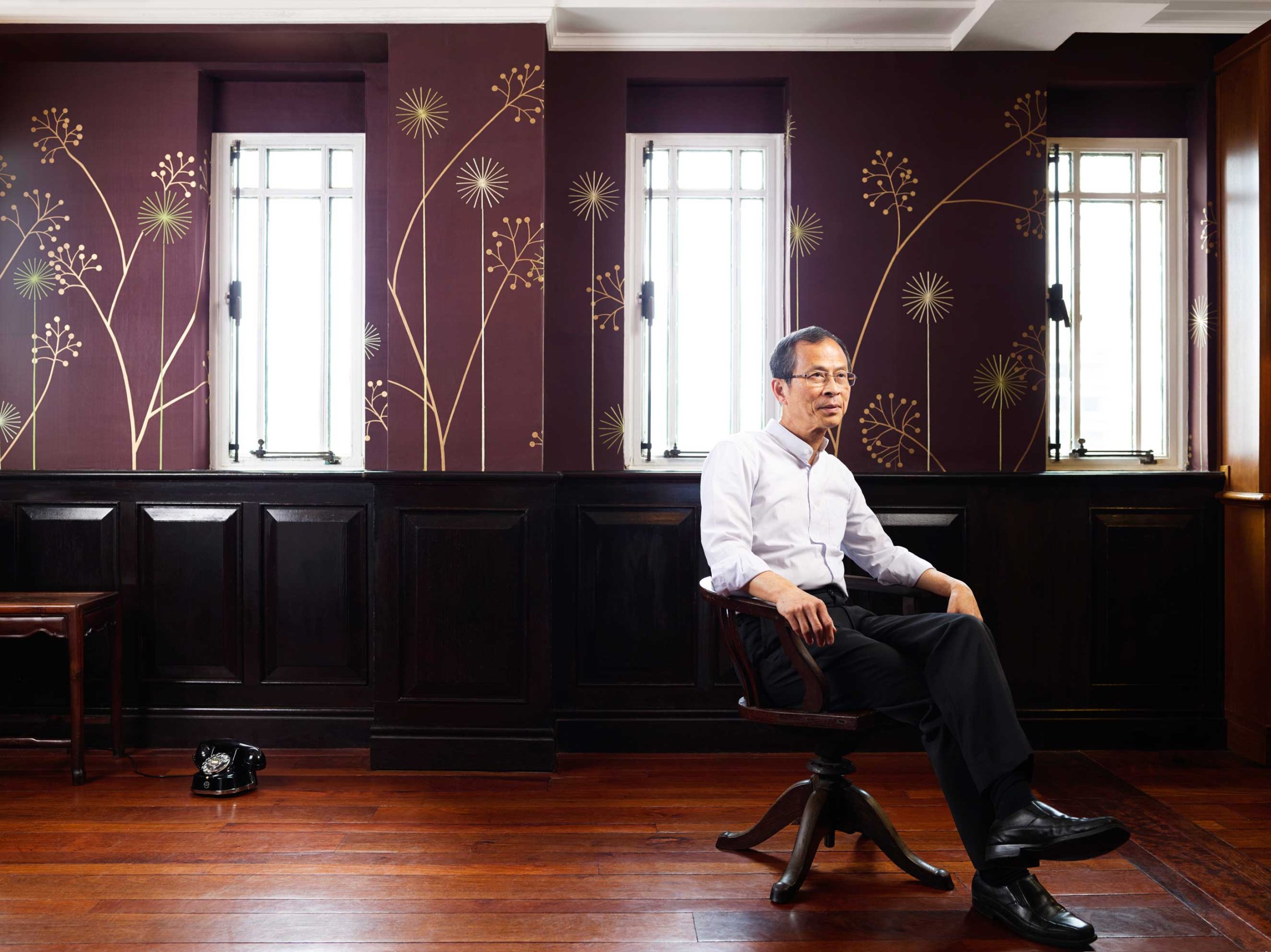
Young people often go through a Marxist phase, but to do so in Hong Kong—a city that the economist Milton Friedman extolled as a temple of “capitalism in action,” with as many billionaires as London and Los Angeles combined—is a more rebellious act. This was especially true in the summer of 1967, when a labor dispute at an artificial-flower factory escalated into a wave of anticolonial riots that left dozens dead. The revolt was initially supported by Maoists from neighboring mainland China and, for the first time, the reasonably stable British colony began to fear how a communist power emerging just north of the border could sway the city.
Every aspiring statesman needs a creation myth, and the summer of 1967 was Tsang Yok-sing’s. He had turned 20 and was a bookish math student at the University of Hong Kong, where in his spare time he penned essays on socialism and justice for campus journals. Then, Tsang’s politics suddenly became personal. During the protests, his younger brother, then 18, and sister, just 16, were jailed—he for two years for passing out pamphlets against the British, she for a month for unclear reasons. The arrests of his siblings left Tsang with a distrust of the city’s colonial rulers, and an acceptance that he would be blacklisted for, say, civil-service positions, sought after in Hong Kong for their high pay and job security. “It closed the doors to the careers that a top Hong Kong university graduate might take up,” says Tsang today.
In the end he did thrive—he just finished eight years as president of Hong Kong’s Legislative Council. But, at 69, Tsang’s career seems far from over. If anything, in a city yearning for better leadership, he is now the hottest political commodity. In July, Tsang announced that he was willing to be a candidate for chief executive (CE), Hong Kong’s head of government, in next March’s election. “He’s a straight shooter,” says David Zweig, a scholar of China at the Hong Kong University of Science and Technology. “Nobody thinks he’s bullshitting for the sake of political advancement.”
Hong Kong is a town where the ruling class has long comprised either tycoons or bureaucrats subservient to whomever is the overlord—London previously, Beijing today. Tsang is his own category, a rare member of the elite who is more idealist than opportunist. While he is a longtime mainstay in the pro-Beijing camp—which many in Hong Kong increasingly decry—he is also the city’s most popular lawmaker, according to an annual survey conducted by the University of Hong Kong. During his tenure as speaker of the legislature, he built his reputation as an executor of compromise, one who would speak up for Hong Kong’s liberal spirit even if it occasionally meant departing from the party line. Unlike that of other Hong Kong politicians, Tsang’s public persona is one of affability and even playfulness; every now and again he crafts riddles for a column in a local newspaper.
Tsang has since been coy about his CE intentions, but many citizens are hoping he does run. “He’s respected on both sides of the political fence,” says Zweig. “He’s remarkably democratic.”
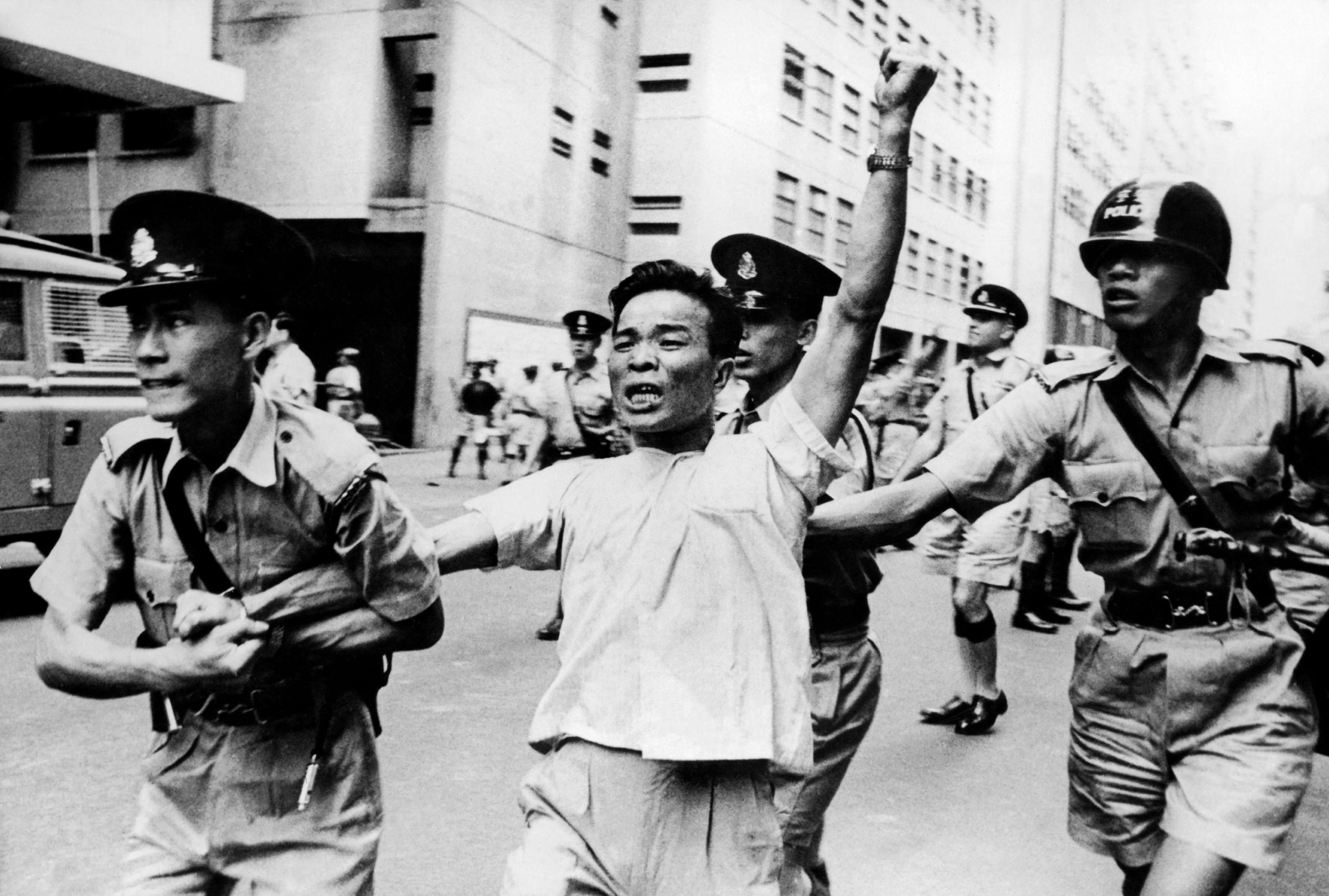
To understand why this is important, you must understand Hong Kong—a center of international finance and an oasis of openness on the edge of the world’s most powerful authoritarian state. The British had to return Hong Kong to China after a century and a half of colonial rule because of the expiry of a lease over most of the territory. The handover, as the transfer of sovereignty is known, took place on July 1, 1997, under the formula of “one country, two systems,” to last for at least 50 years. While Beijing would have ultimate control, Hong Kong would largely be left alone, maintaining its institutions and civil liberties. Hong Kong would remain special—a part of China and yet apart. “Our Hong Kong compatriots have become the true masters of this Chinese land,” said then Chinese President Jiang Zemin on the day of the handover.
In recent years, however, the city that many had hoped would help make the mainland more progressive is instead becoming a case study for China’s intolerance of dissent. Efforts to introduce greater democracy have failed under a local government perceived by many Hong Kongers as Beijing’s puppet. The police, once called “Asia’s finest,” are increasingly seen as an arm of the state, as they are in China. Outspoken publishers have disappeared. Democrat lawmaker Emily Lau says the city is facing its “darkest hours.” In response to these developments, some in Hong Kong are calling for an impractical solution: the territory’s independence—a notion so abhorrent to Chinese and Hong Kong officials that several of its advocates have been barred from running in the Sept. 4 legislative elections.
For their part, many on the mainland regard dissenters in Hong Kong as unpatriotic and the city as spoiled and insufficiently grateful for the opportunity to ride the economic juggernaut that the motherland has become. Yet even those who normally support China’s leaders believe that they’re missing something. “Beijing doesn’t have a full grasp of how Hong Kong really feels,” says tycoon-politician Michael Tien. “Beijing thinks that material well-being will resolve everything.”
The result, nearly 20 years after the handover, is a tense society fragmented among loyalists, democrats and activists, and anxious about its current and future place in China, even as life goes on as normal on the surface. Anti-China protests are common, and growing. “Hong Kong and Beijing relations are caught in a vicious cycle,” Tsang tells TIME. “These incidents [have] worked to deepen the suspicion between Hong Kong people and the central government.”
Tsang could be the one to span that chasm, as a bridge builder among the pro- and anti-China forces in Hong Kong, and between the city and the leadership on the mainland. He openly admits to having “friends in Beijing” and for years has deflected speculation over whether or not he is a member of the Chinese Communist Party (CCP). “If I were, I would not tell you, I could not tell you,” says Tsang.
The CCP is historically anathema to Hong Kong in part because many of its people escaped Chinese communism or are descended from those who did. Yet they seem cautiously optimistic that Tsang would fight for what are conversationally referred to as Hong Kong’s “core values.” These include freedom of speech and assembly, rule of law, a sense that popular opinions are heard and respected—established gradually by the British before the handover and essential today to the city’s status as a global business hub. “If you try to take away the core values, change these values, then the system no longer exists,” says Tsang. “We have to make the central government officials understand this.”
Anson Chan served as Hong Kong’s chief secretary, the CE’s No. 1 deputy, from 1993 to 2001 and eventually became an outspoken voice for the city’s autonomy. As she sees it, “The job [as CE] comes down to what you see as your main mission—do you see yourself as someone who will do battle on behalf of Hong Kong people? I think Tsang has a conscience … and a grasp of what makes Hong Kong tick.”
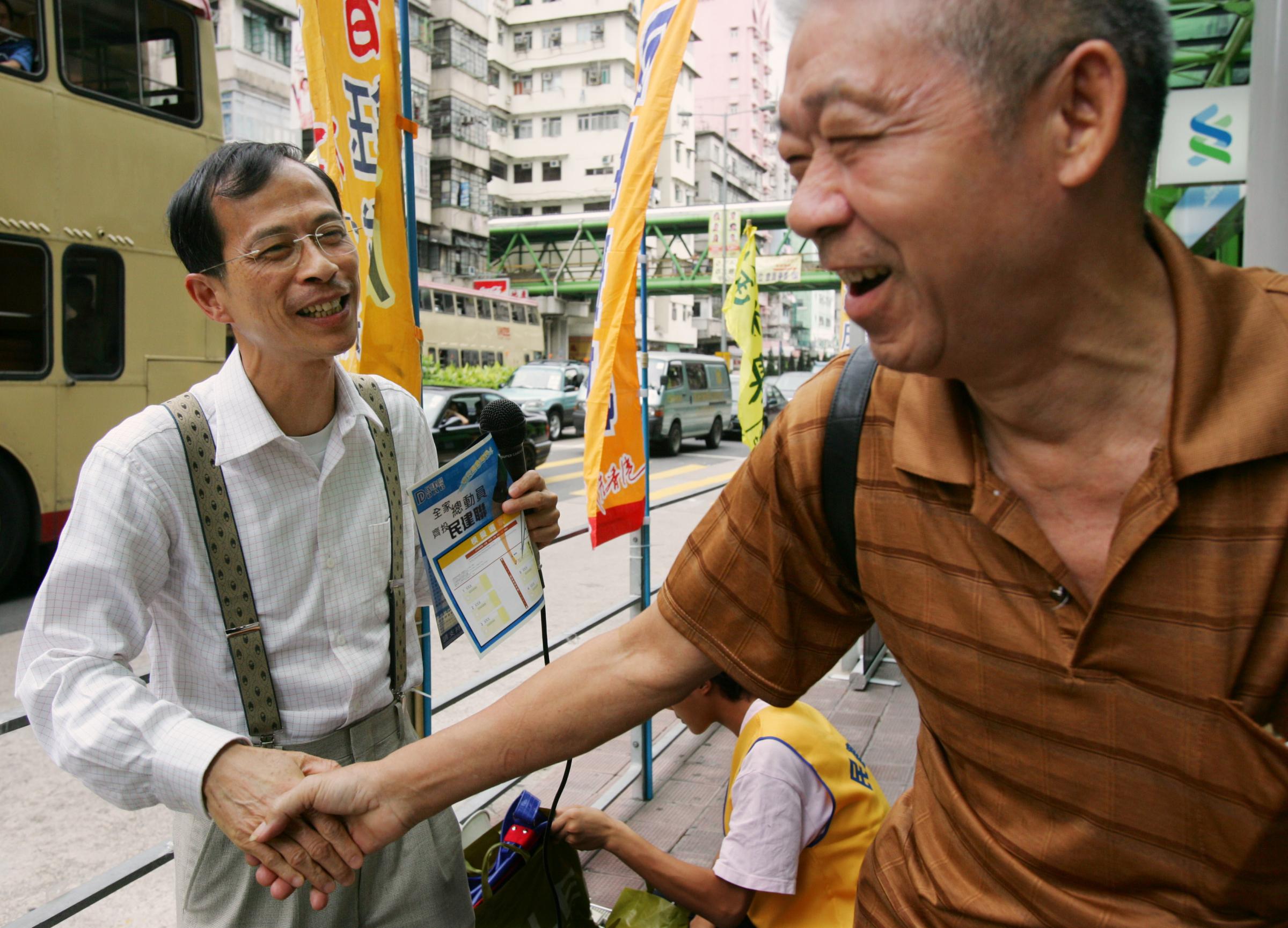
Tsang knows better than most that the story of Hong Kong has always been a story about China. Hong Kong exists as it has for the past half-century—as a densely populated hive of industry and commerce—largely because of the mainland Chinese immigrants who fled to the territory during the communist revolution, multiplying the territory’s population nearly fivefold. Tsang’s family was among them. His father was mostly apolitical but took a job as a clerk with a federation representing mainland businesses that had set up shop in Hong Kong. The family was, Tsang says, “quite poor,” the five of them living together in a one-bedroom apartment in Kennedy Town, a dockside neighborhood that today is a gentrifying enclave of coffee shops and craft-beer joints.
He found China when he was 12. Bored by the ease of his schoolwork, he consumed the pro-Beijing newspapers his father brought home from work and came to idolize the world-class rocket scientist Qian Xuesen, who helped develop China’s nuclear program. This was a decade after the communist takeover but still before the terror of Mao Zedong’s Cultural Revolution. Tsang found Mao “colorful” and discovered a kindred spirit in Karl Marx, whose ideas read “much like a mathematical thesis … easy for someone with a mathematical mind to understand.”
In the mid-1960s he enrolled at the University of Hong Kong as a math student. In the summer after his second year there, his mother brought him to the southern Chinese city of Guangzhou on the mainland to stay with her brother, a well-to-do government dentist. They sat together late into the night and talked about Marx. “It was such an important event in my life,” says Tsang. “It impressed me greatly. The standard of living was more or less the same as Hong Kong’s, but I found the city to be so friendly, so enthusiastic for their country—something quite new to me, being brought up in colonial Hong Kong.”
Tsang returned to the colony with his heart full of a new patriotism for the motherland, despite its then poverty and turmoil. “In Hong Kong, you were expected to get a good degree, get a good job, get married, get a flat, and that’s it—but to a young man who has read socialist theory, that was simply very disheartening, to think of a life in some office doing regular work 9-to-5. I kept asking myself, What is life for?”
Because of his siblings’ convictions, Tsang’s opportunities were limited, and a sense of responsibility to his family kept him from pursuing further studies in the U.S. Instead, Tsang took a job as a math teacher at a school run by communist sympathizers and ultimately became its principal. In 1992 he assembled a group of people with a similar ideological loyalty to China as he had and formed the pro-Beijing Democratic Alliance for the Betterment and Progress of Hong Kong, today the city’s biggest political party.
Tsang’s first political foray had come a decade earlier, though. In the early 1980s, Margaret Thatcher and Deng Xiaoping sat down to negotiate the future of Hong Kong, and Tsang was selected as a member of the committee drafting Hong Kong’s post-handover constitution, which would be called the Basic Law. It promised that the CE would eventually be chosen by “universal suffrage,” or popular elections. “We were very optimistic then that China was going to open up, reform, become more liberal and civilized,” says Tsang. “We thought that eventually we’d have a democratic system of government in Hong Kong because China would become democratic.”
This has not been the case. Under President Xi Jinping, China has stressed national security and identity above everything else and become more repressive at home: detaining human-rights lawyers, journalists, feminists and sundry activists; tightening control over the media; and corralling the Internet. So while China can be an asset for Hong Kong, especially economically, it is hardly a role model. “You have to remember that, for Beijing, ‘one country, two systems’ has never been cast in stone,” says Willy Lam, a China expert at the Chinese University of Hong Kong. “Now that China is more powerful … the weight is on one country, not two systems.”
Two years ago, many in Hong Kong decided to stand up to Beijing. Over nearly three months, mostly young adults—who had been in diapers at the time of the handover—occupied parts of the central business district and other key commercial areas. Crowds in the hundreds of thousands gathered. Besides an assertion of Hong Kong identity, their chief demand was that the candidates for CE be freely nominated, rather than be prescreened by a local 1,200-member committee largely deferential to Beijing and be limited to just two or three candidates. (To protest the nomination system, democratic lawmakers voted down the government’s proposal to broaden the CE voter base to the wider public from the 1,200-member electoral college, of which the nominating committee is practically a facsimile.)
But the younger generation’s push for democracy was more fundamentally a damnation of a system they saw as having failed them. To be a young Hong Kong person today is to face falling incomes, unaffordable housing and diminishing upward mobility, which used to be astonishingly rapid. Says Tsang: “The younger generation have been promised democracy and promises about making Hong Kong a better place to live in. They expect the government … to deliver what they promised. They have good reasons not to be satisfied with what they are getting.”
Occupy Hong Kong was also a vote of no confidence against the current CE, Leung Chun-ying, better known by his initials C.Y. (as in: “C.Y., Step Down,” a slogan that has been graffitied since the protests). It is difficult to understate how deeply unpopular Leung is. Some have ventured that if he is chosen again next March by Beijing, as he was in 2012, to serve a second five-year term, protests as violent as those in 1967 could break out.
A stern and aloof former land surveyor, Leung was identified early by Beijing as a highflyer—he served in the same Basic Law committee as Tsang when only in his 30s. Though Leung has tried to increase the housing supply and jump-start the economy, many Hong Kong citizens perceive him solely as Beijing’s lackey because local freedoms have eroded under his watch. He has not reached out to democrats or young activists, and, as with Donald Trump in the U.S., even many members of the city’s Establishment disavow him. The U.S. has its Never Trump movement; in Hong Kong, it’s Anyone But C.Y.
79 Days That Shook Hong Kong
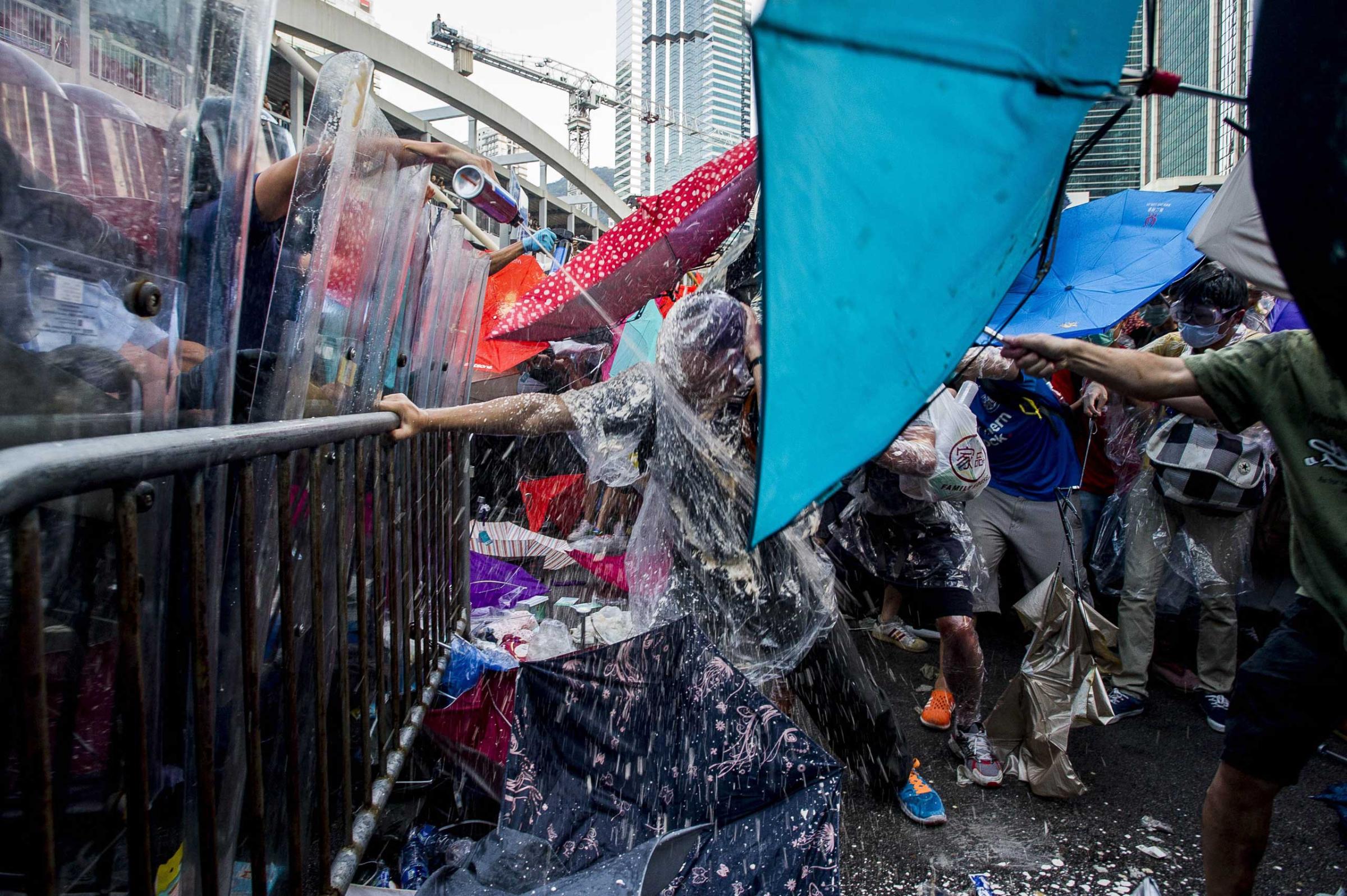
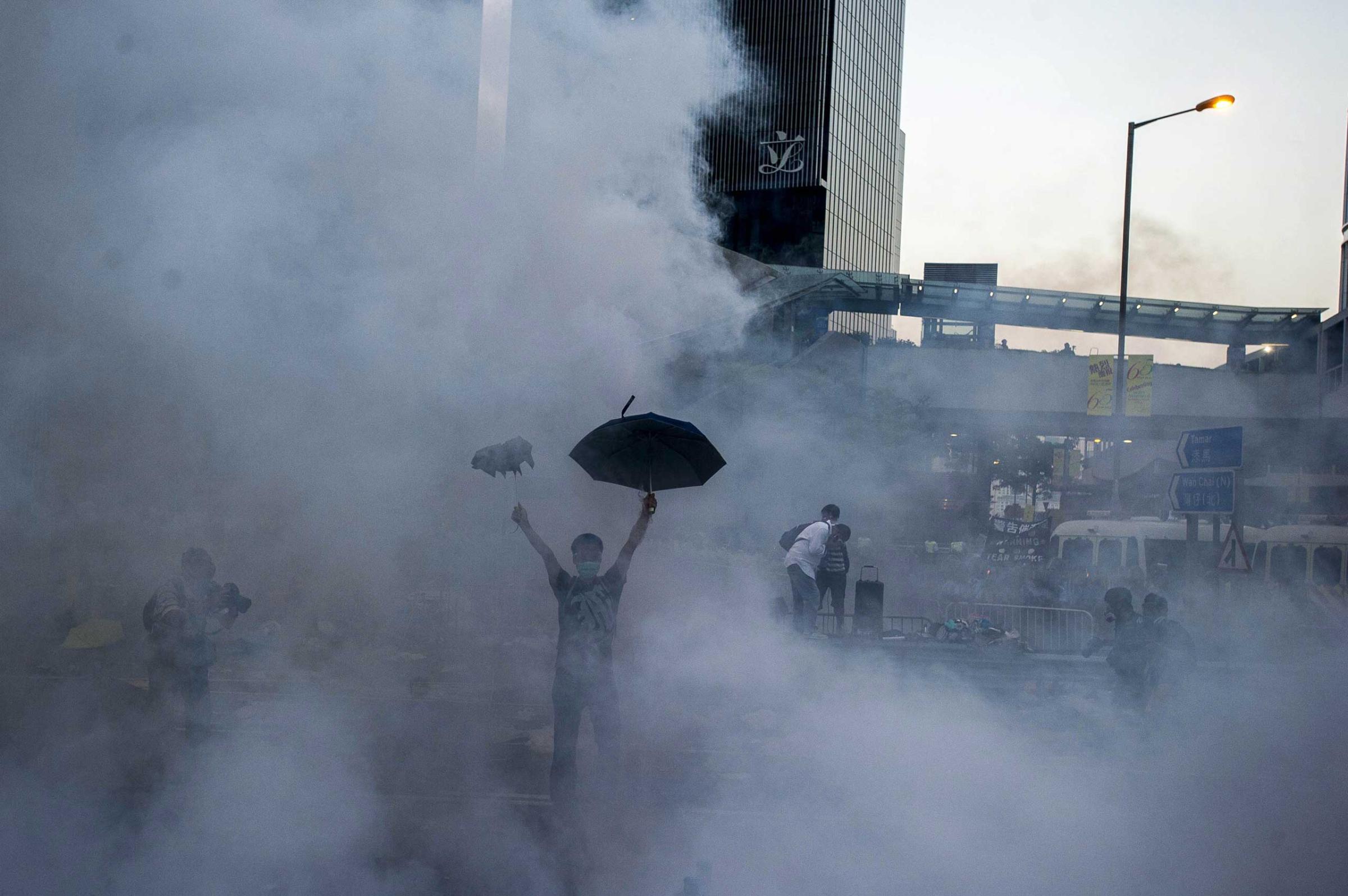
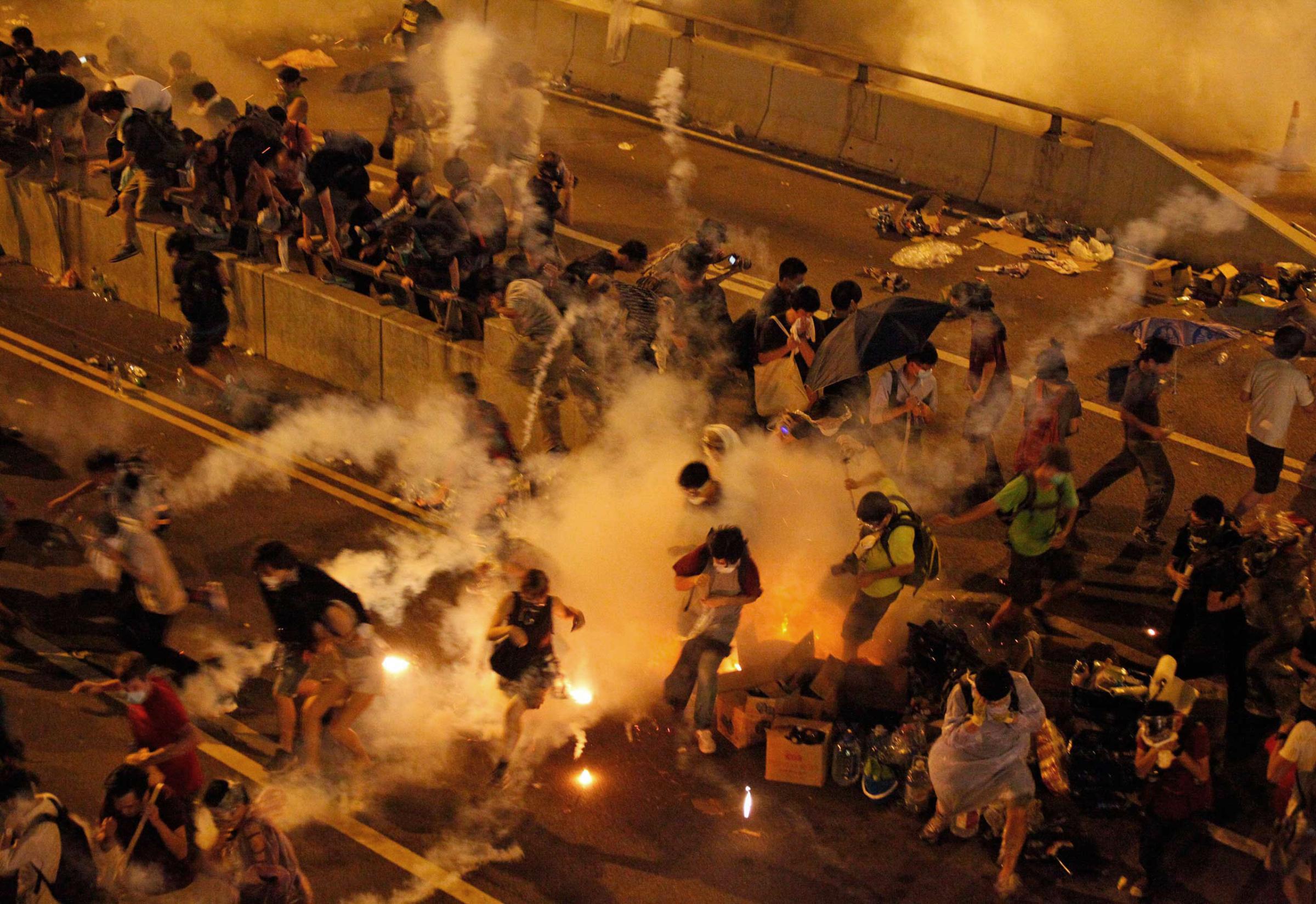
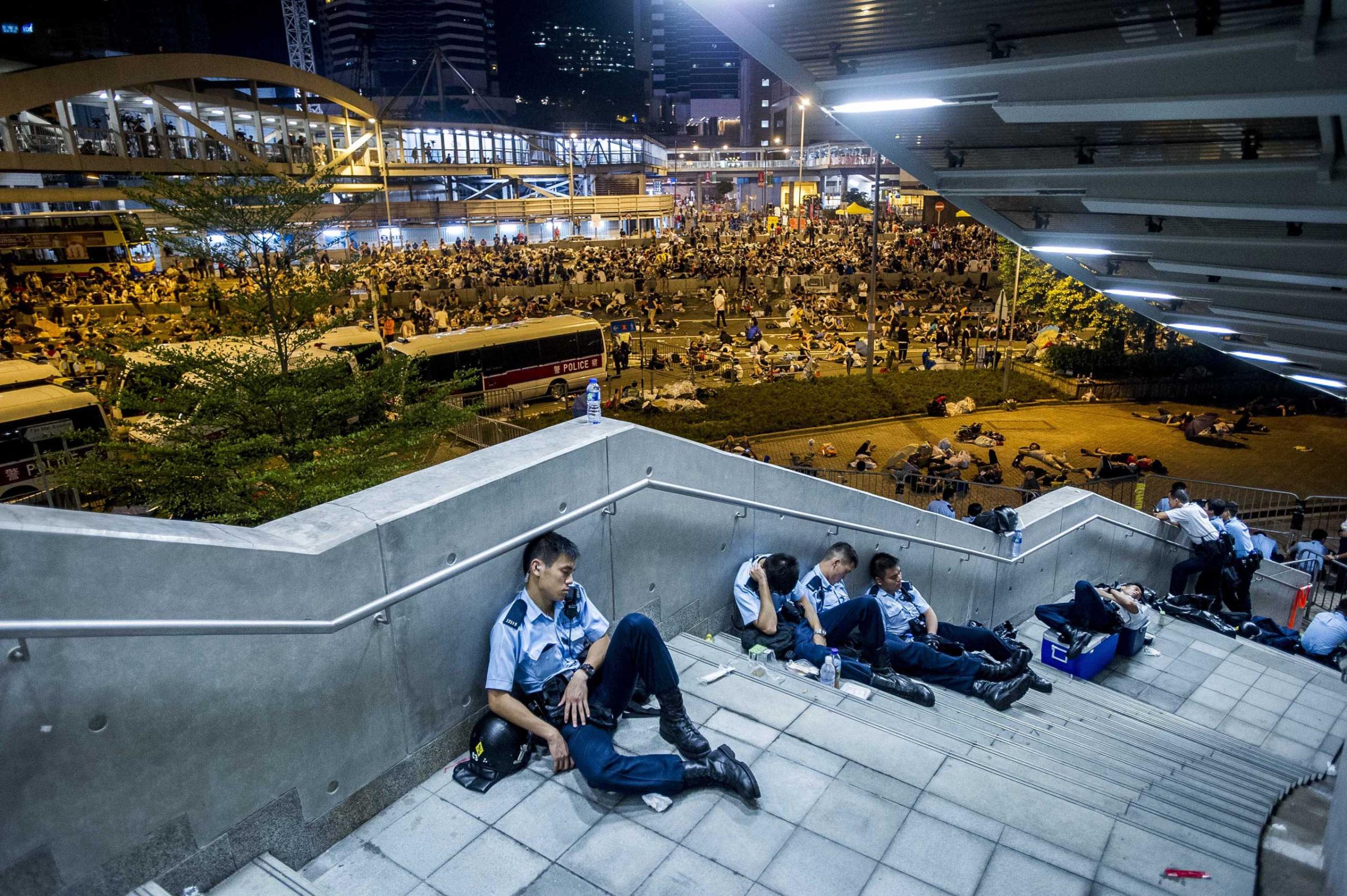
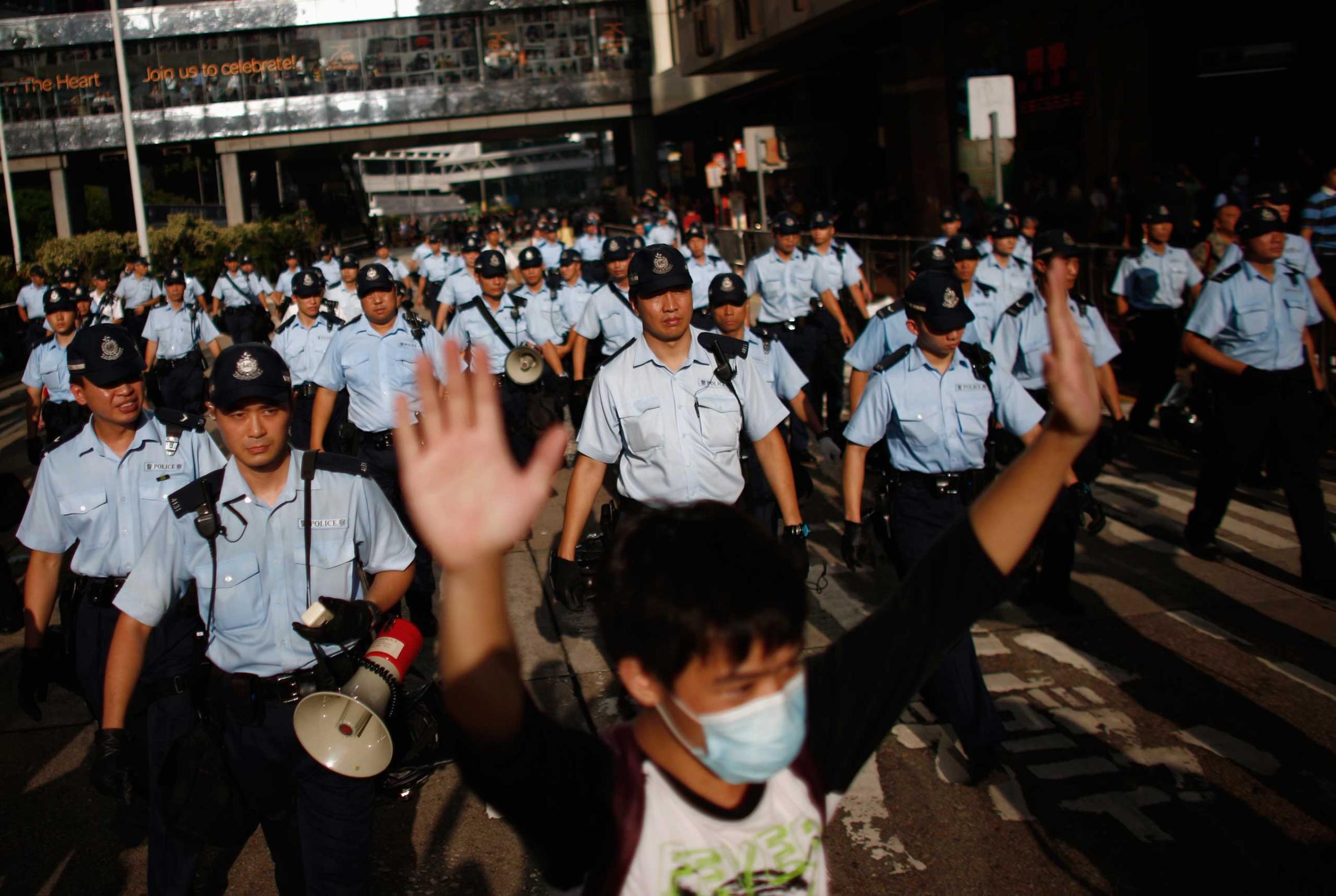
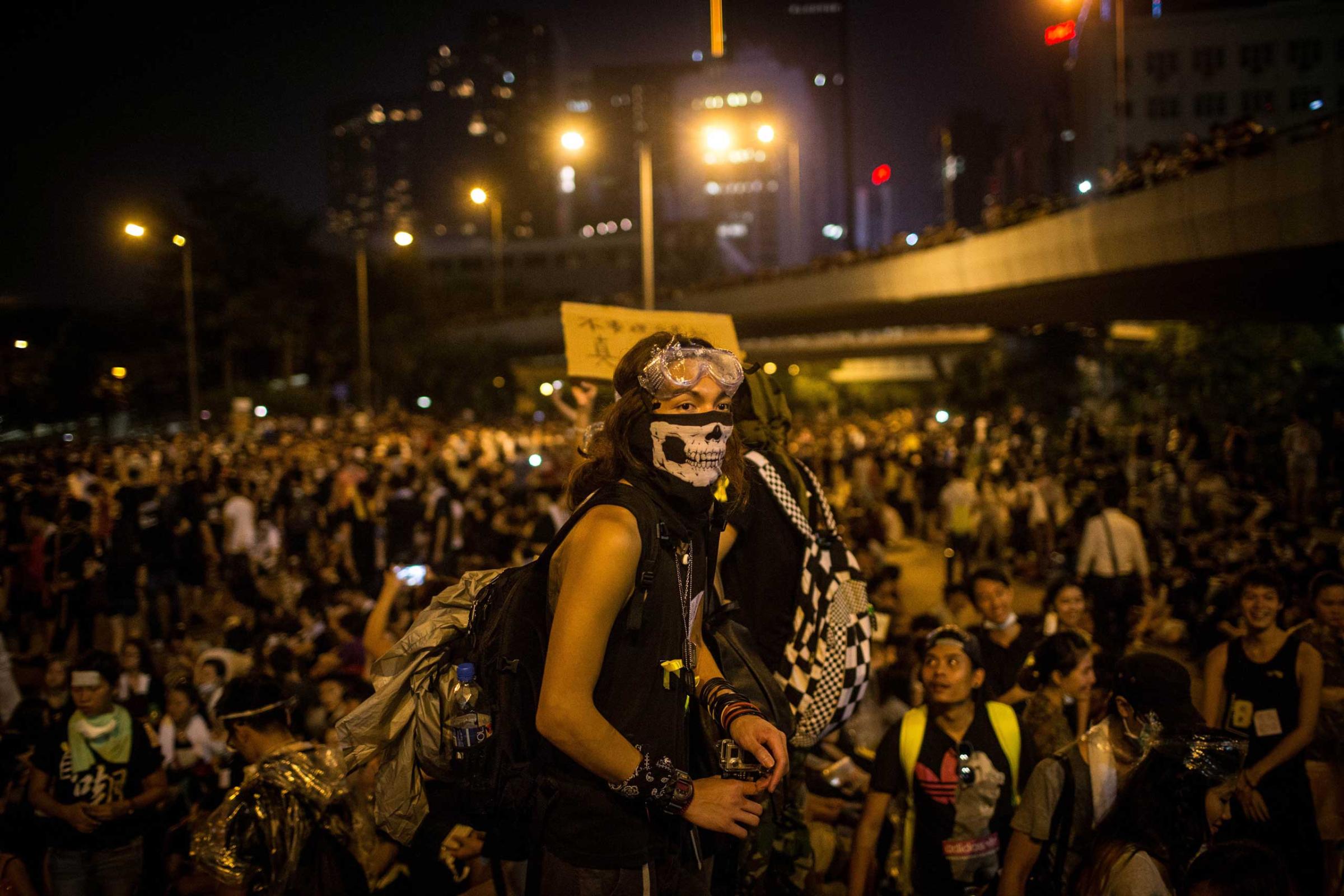
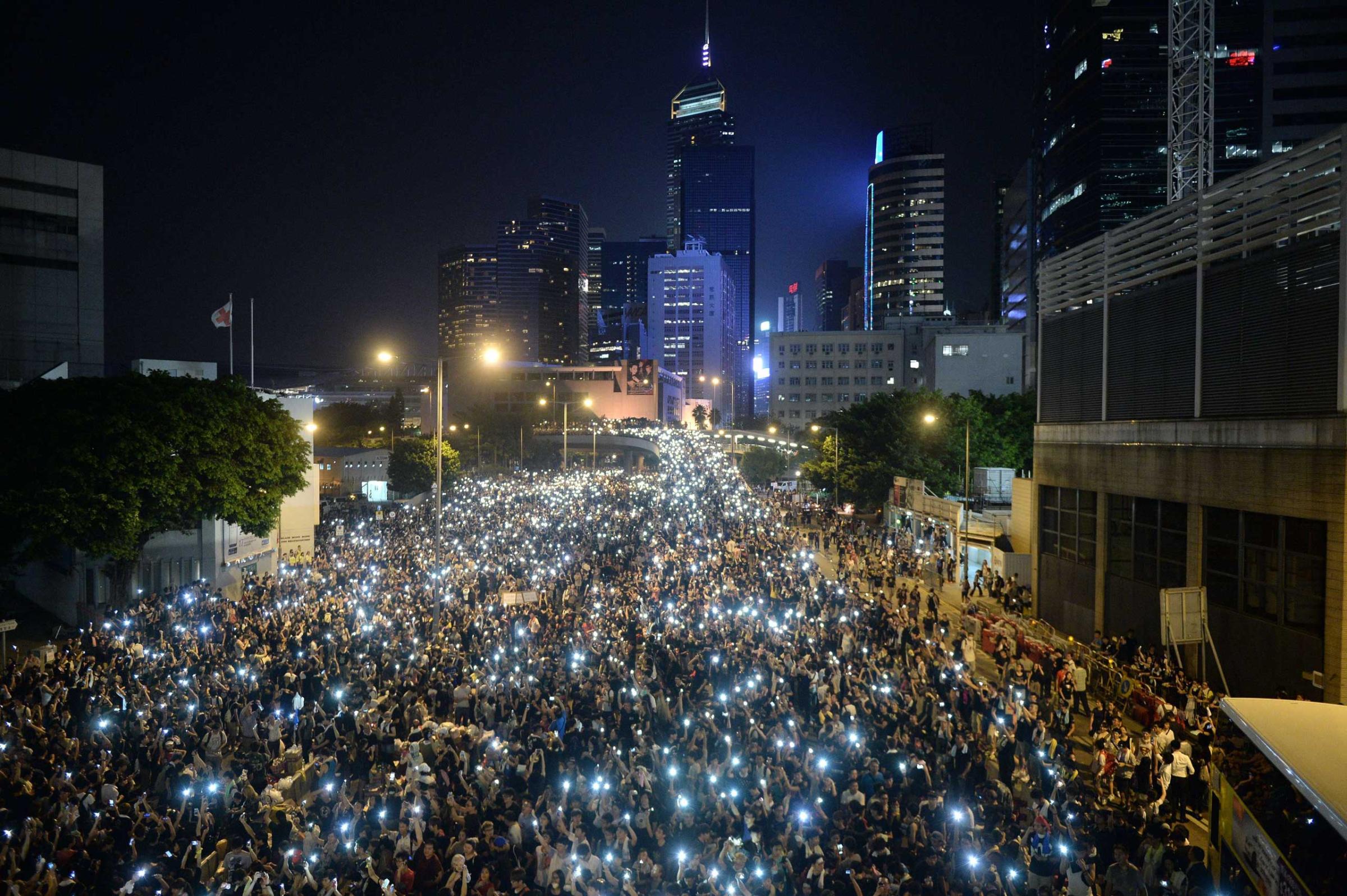
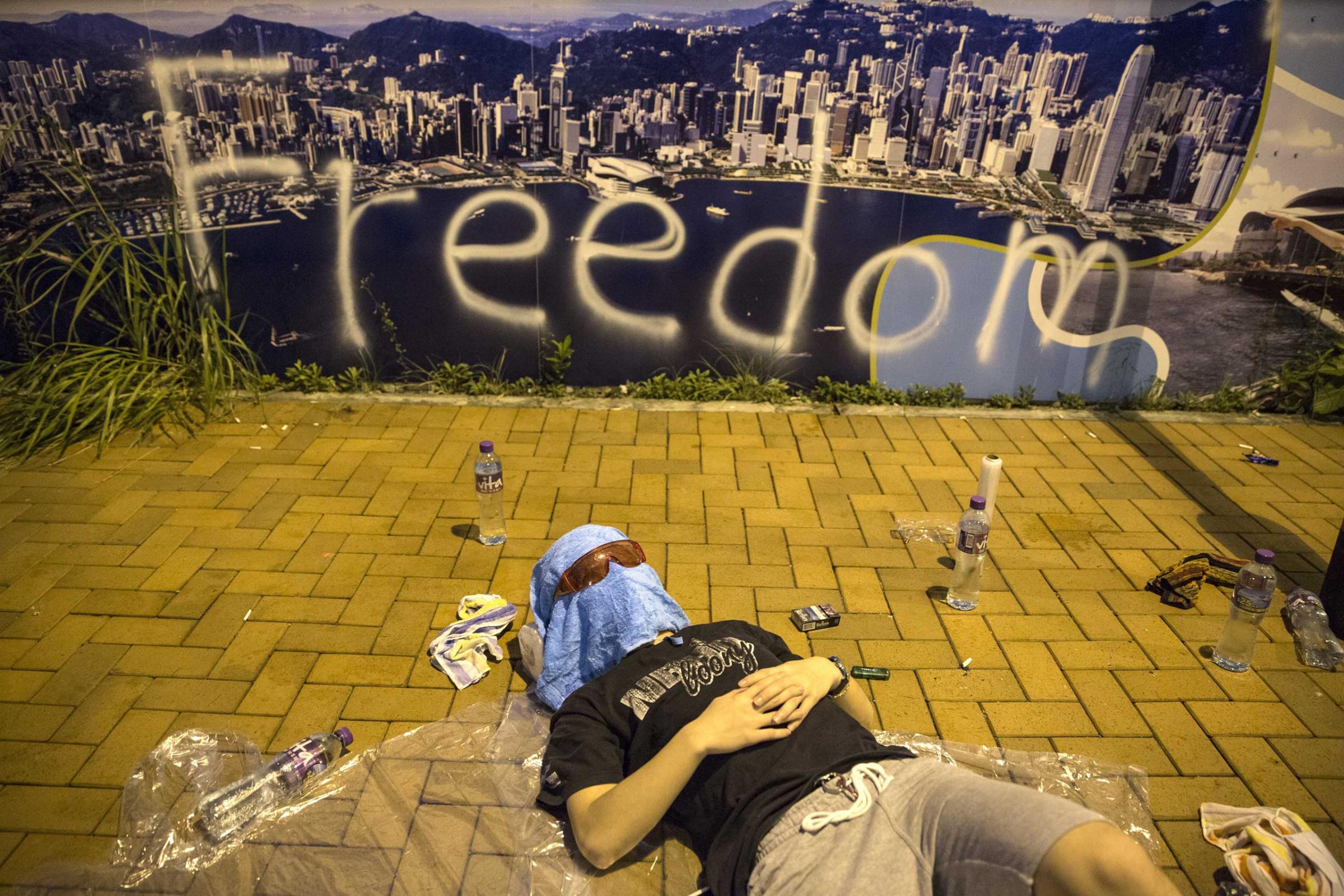
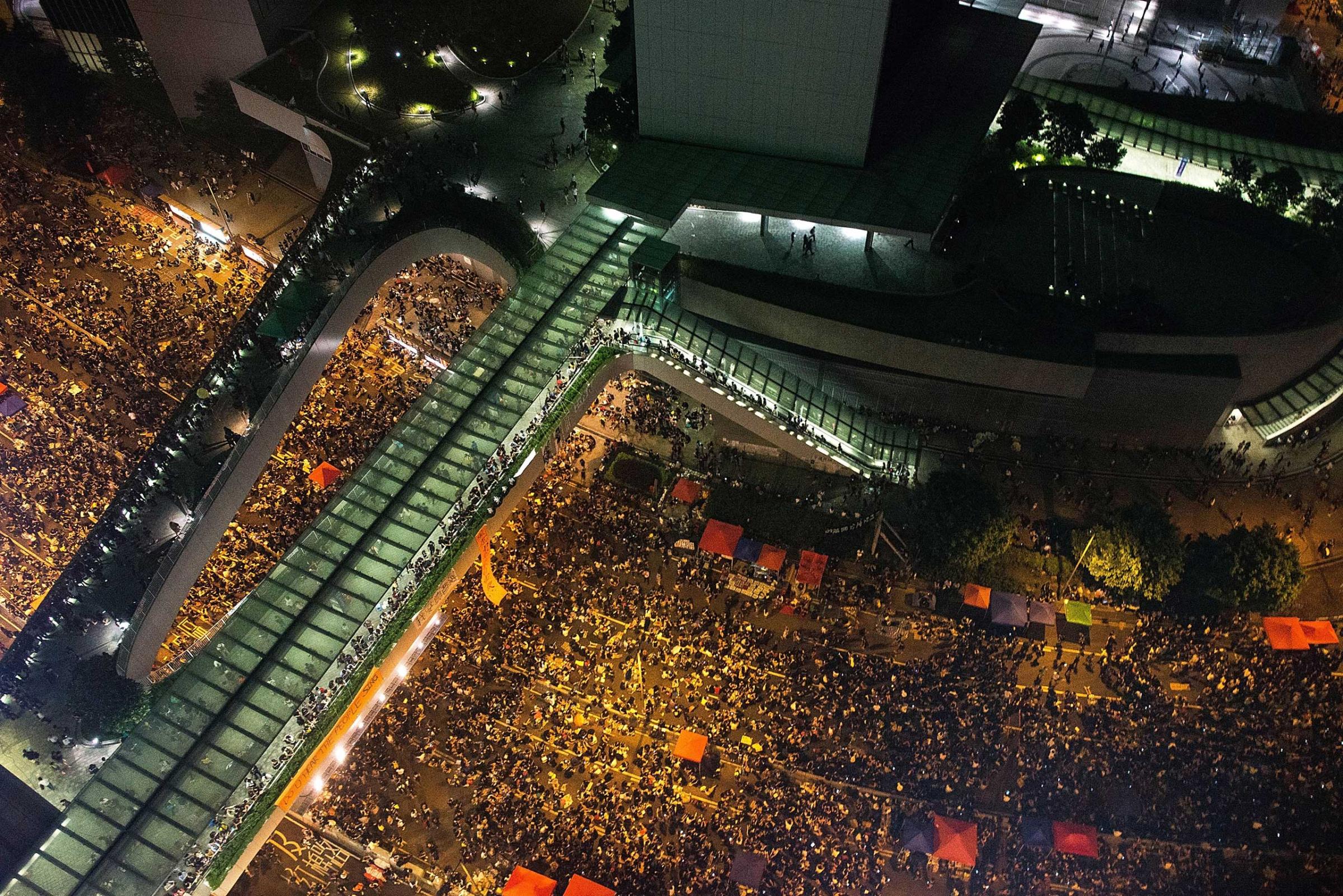
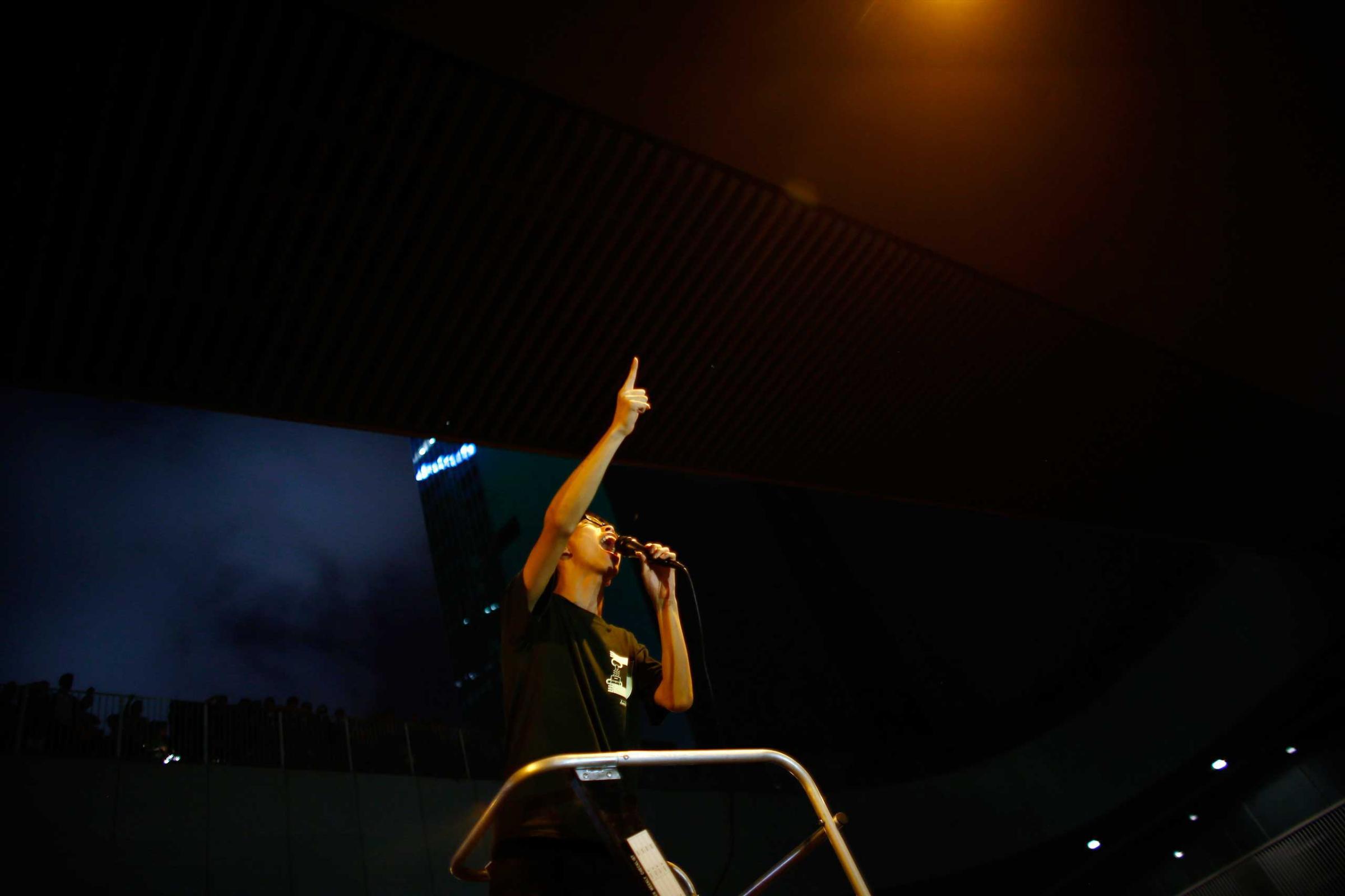
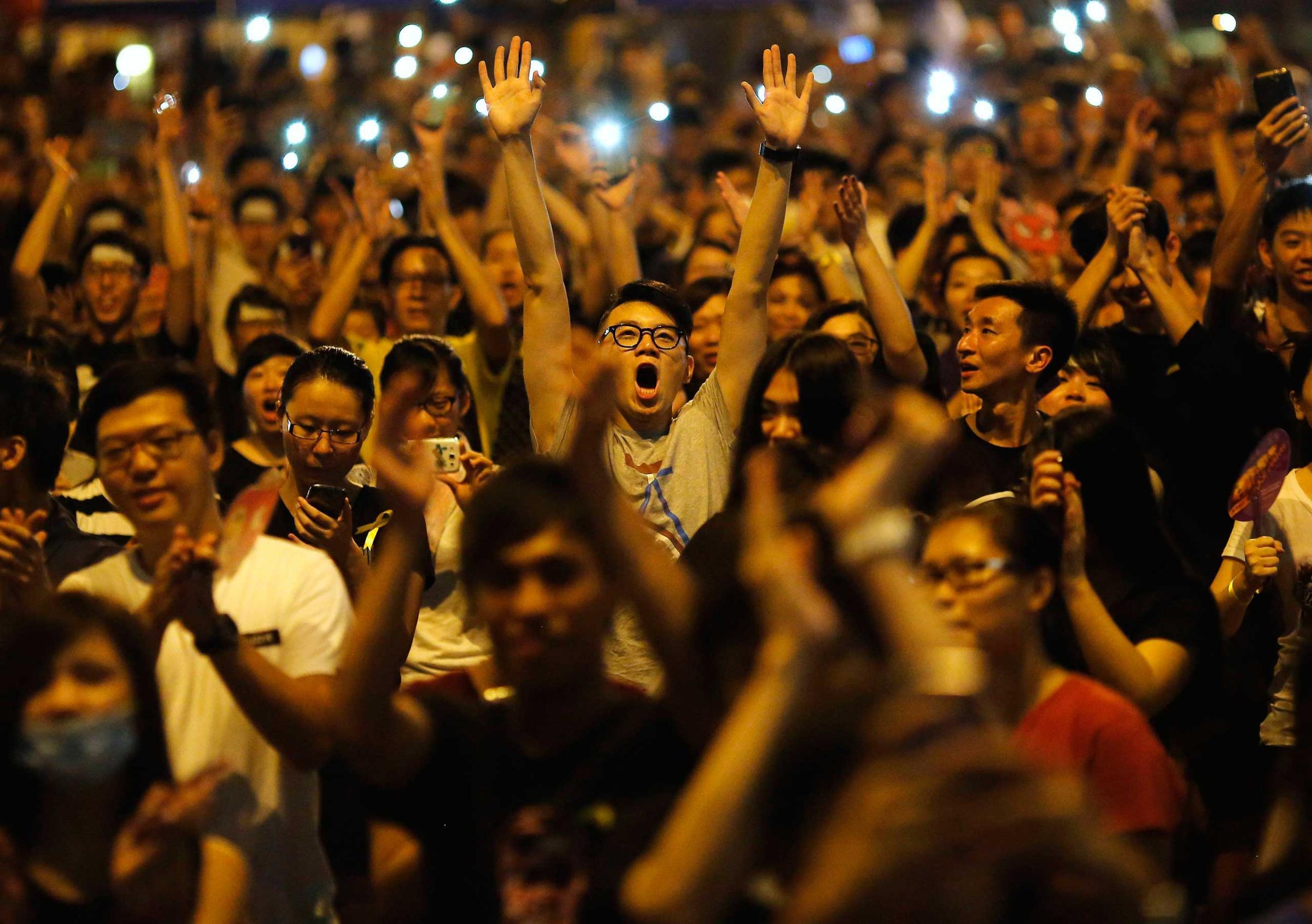
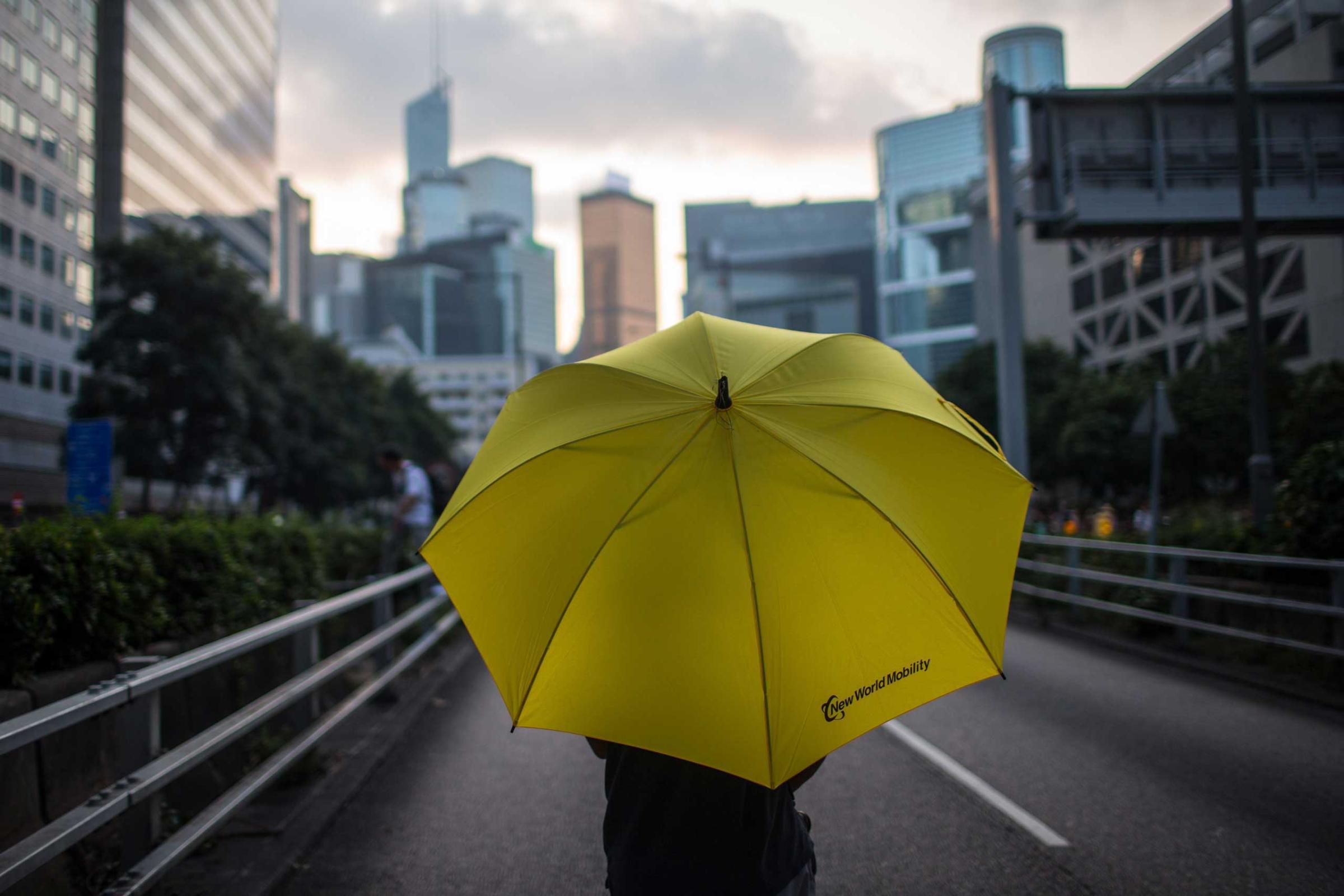
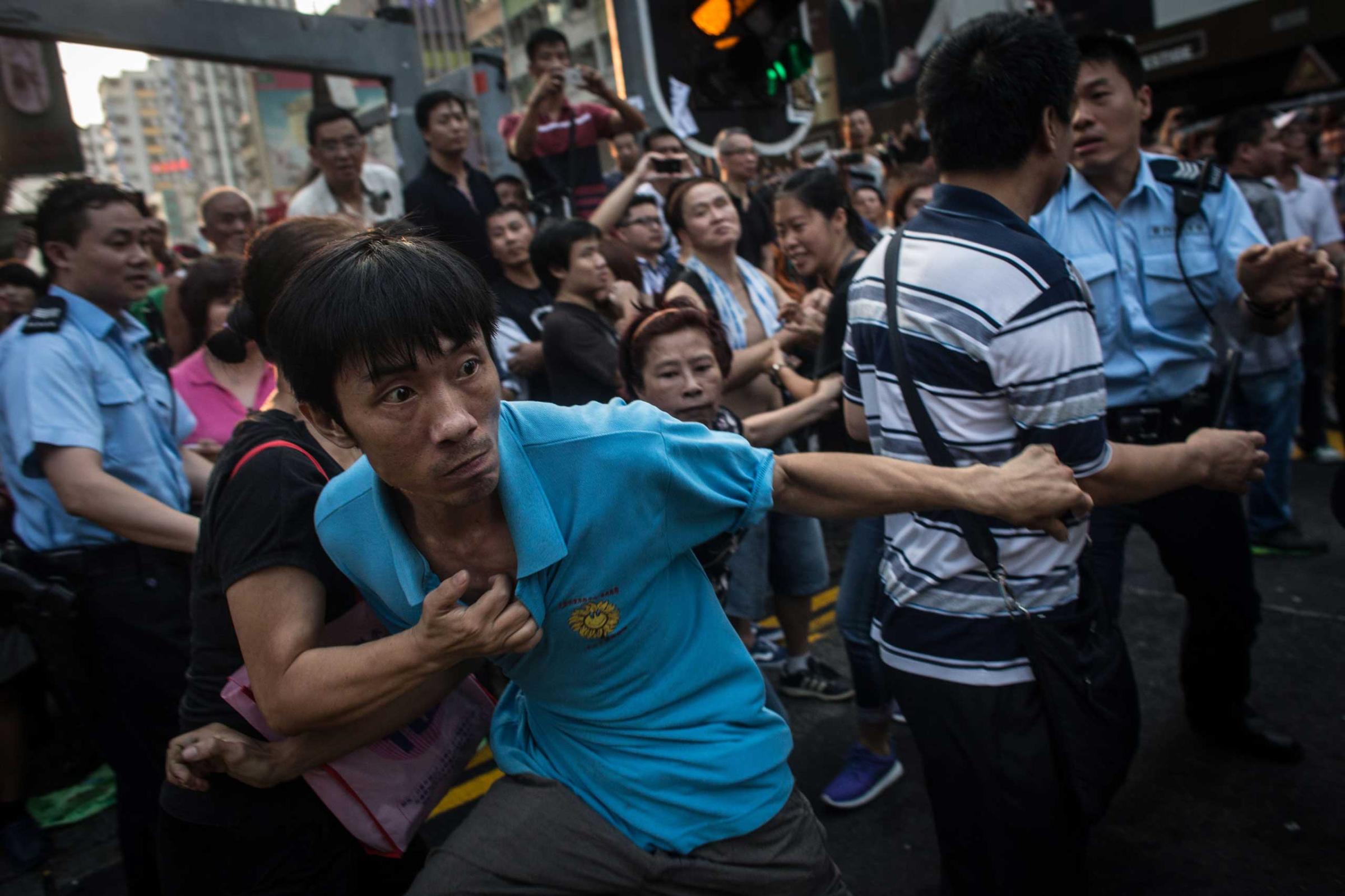
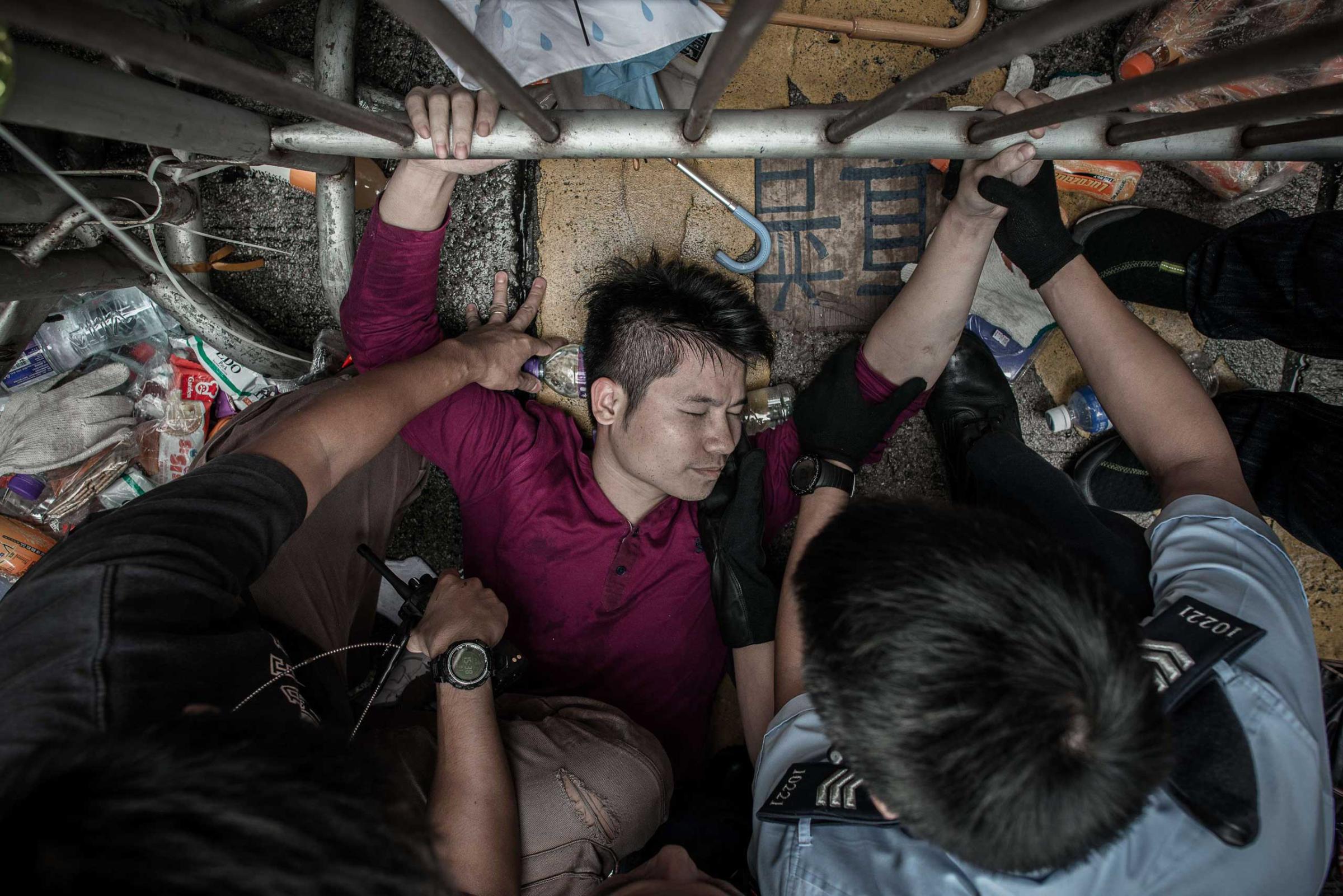
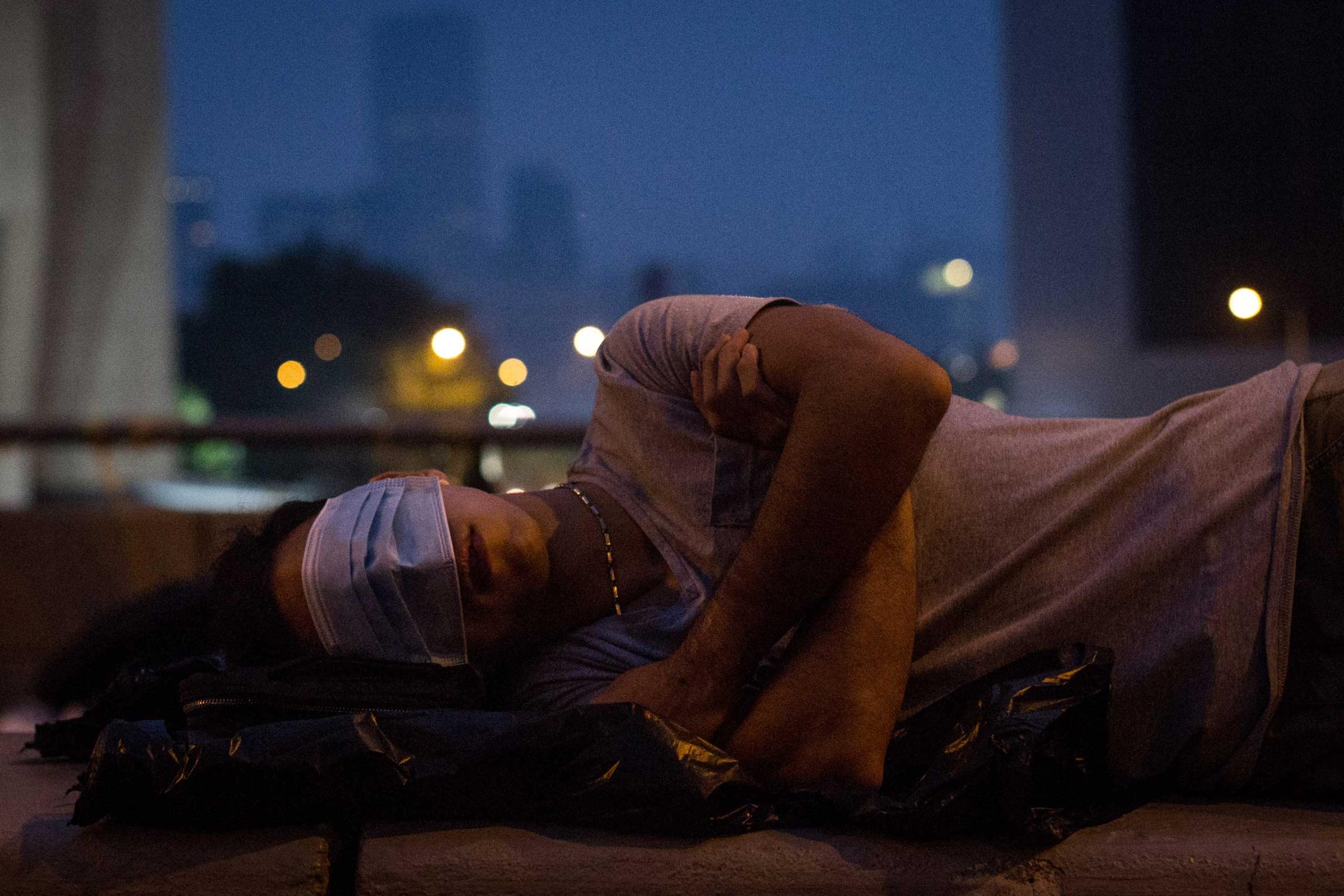
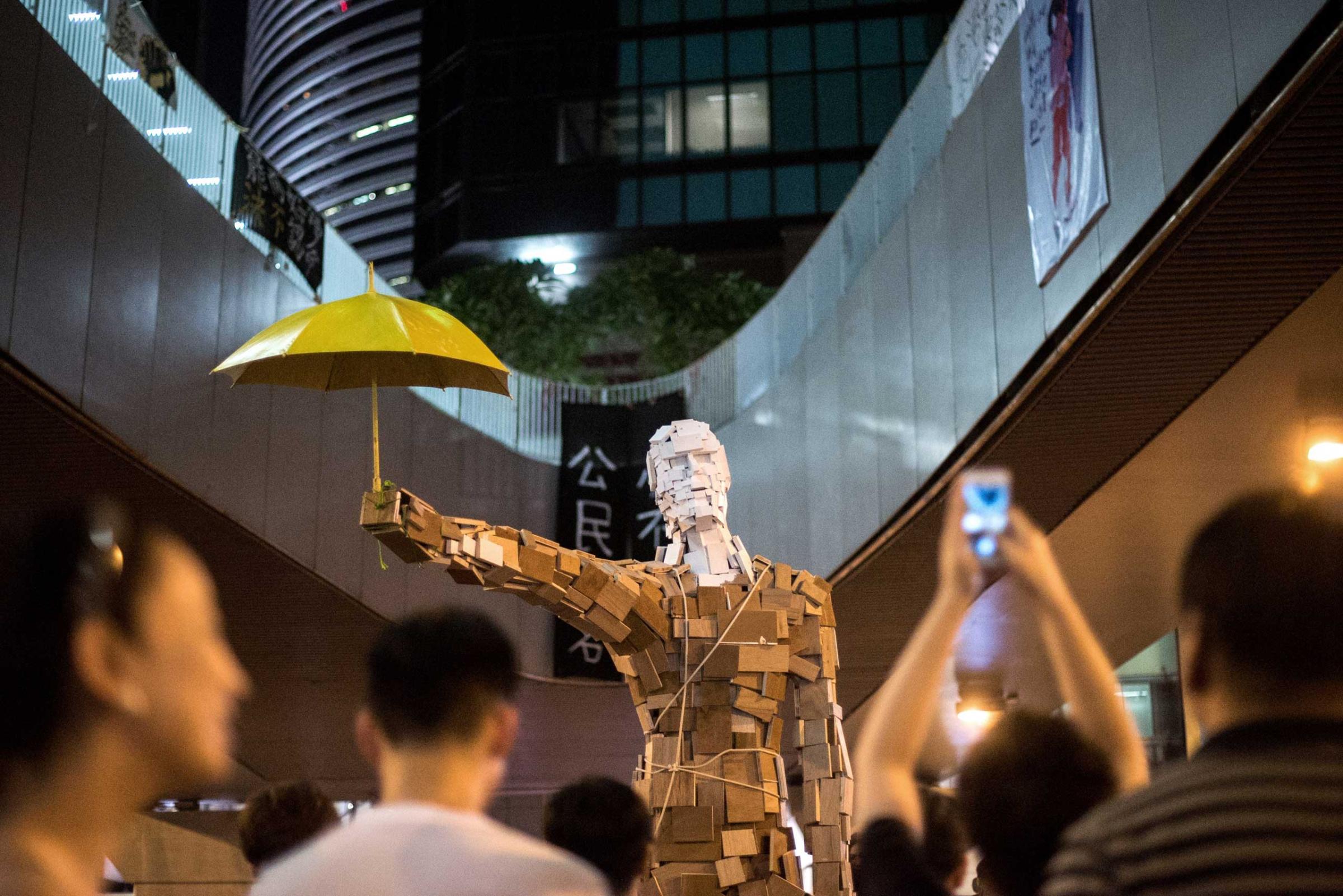
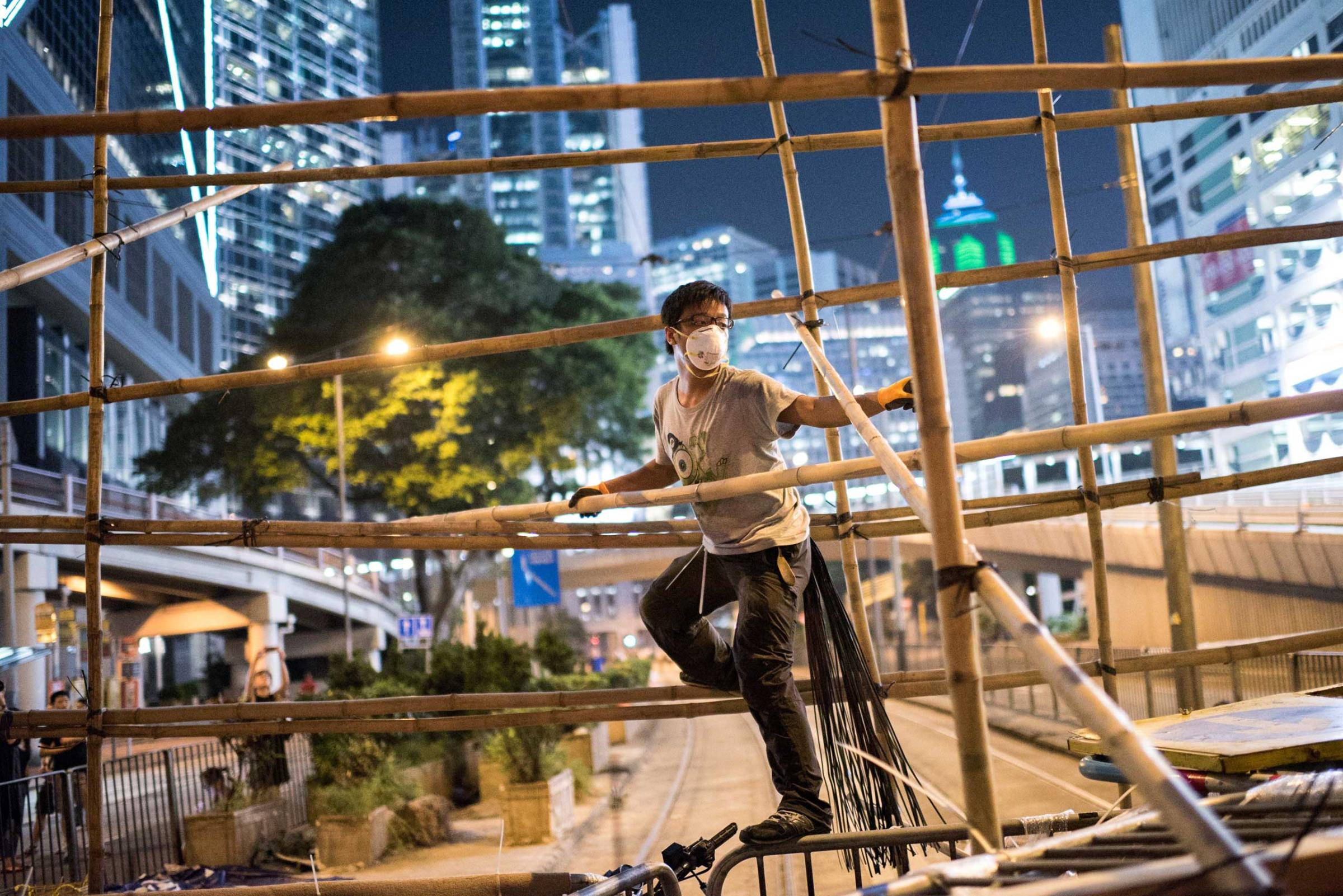
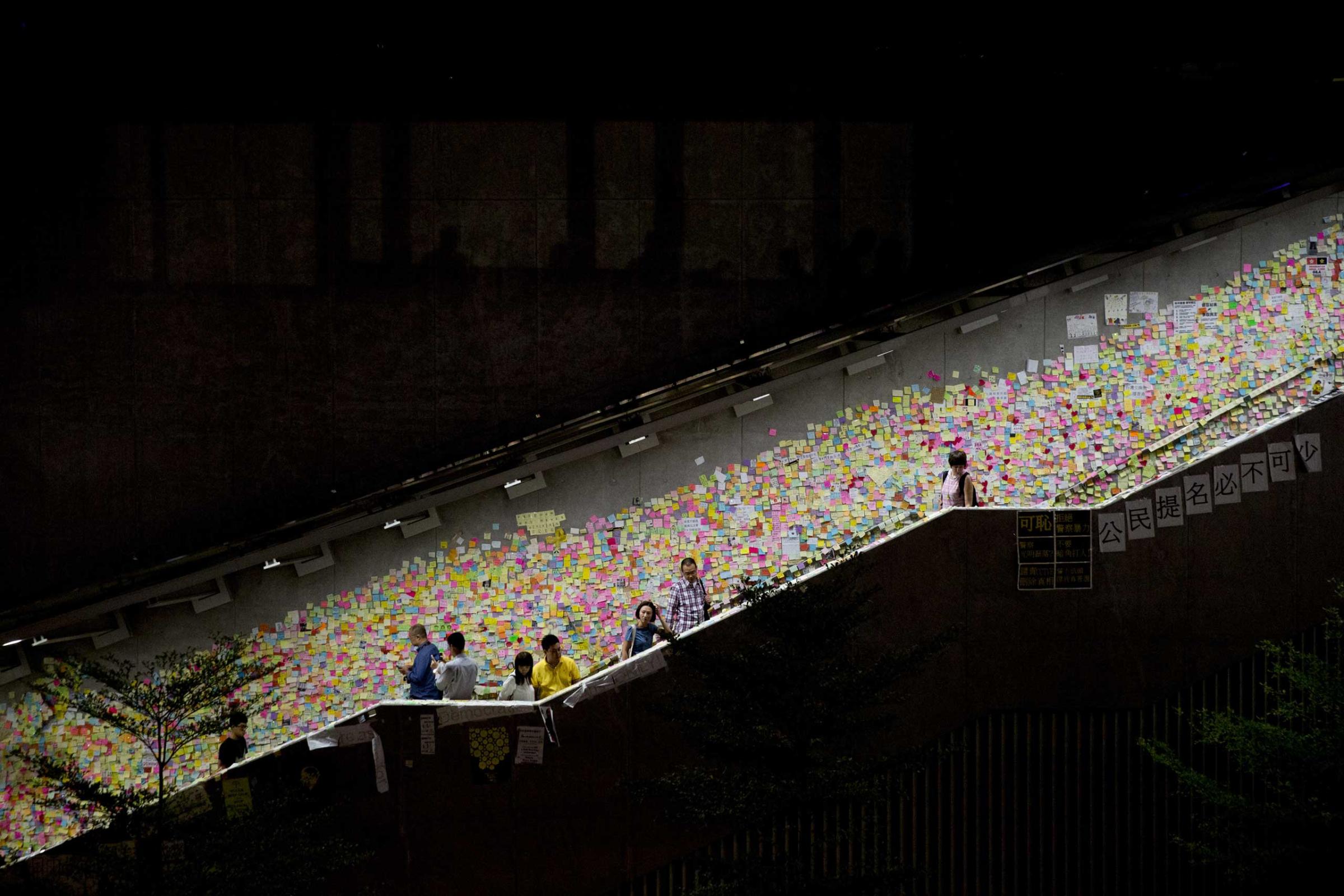
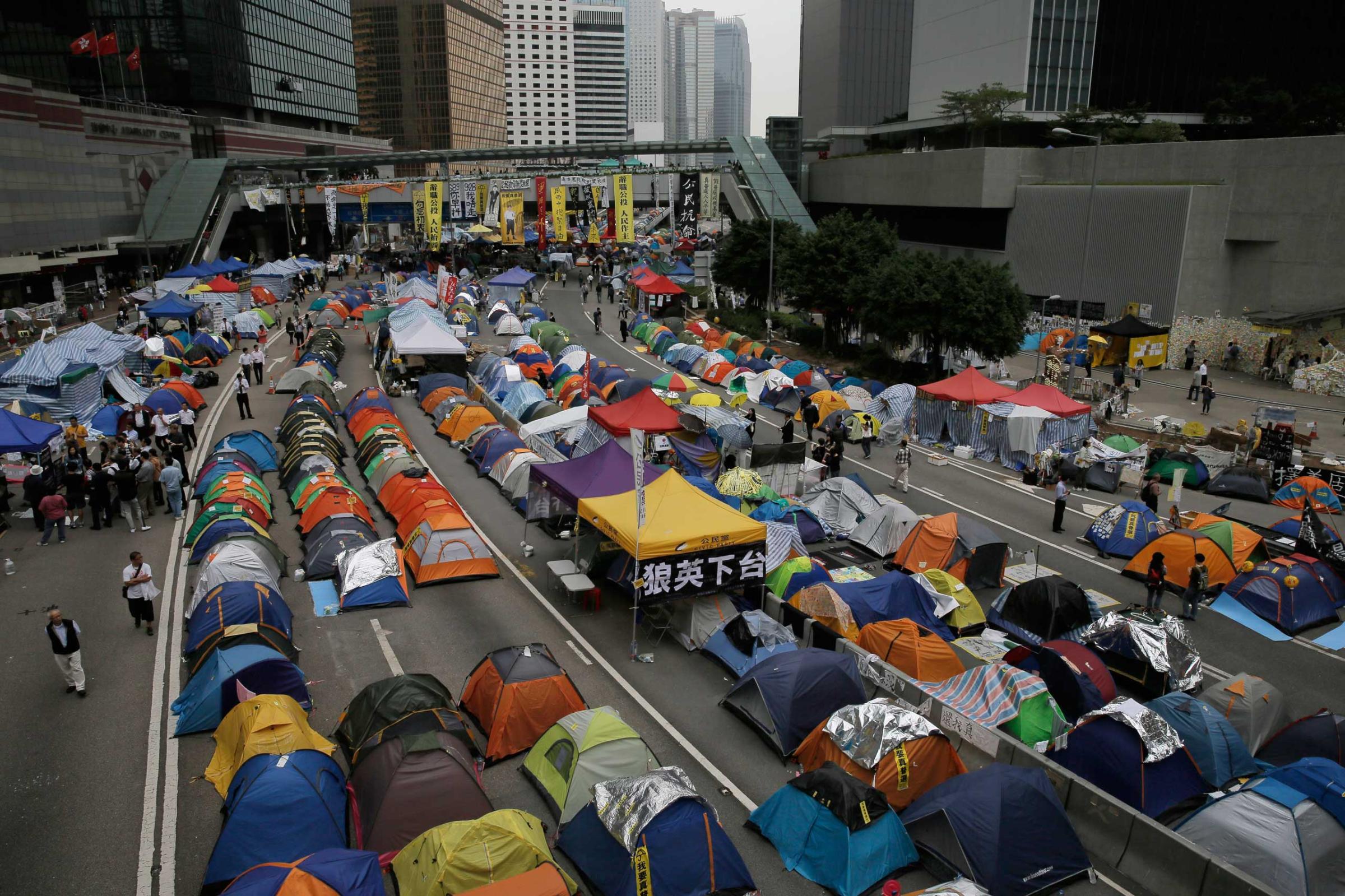
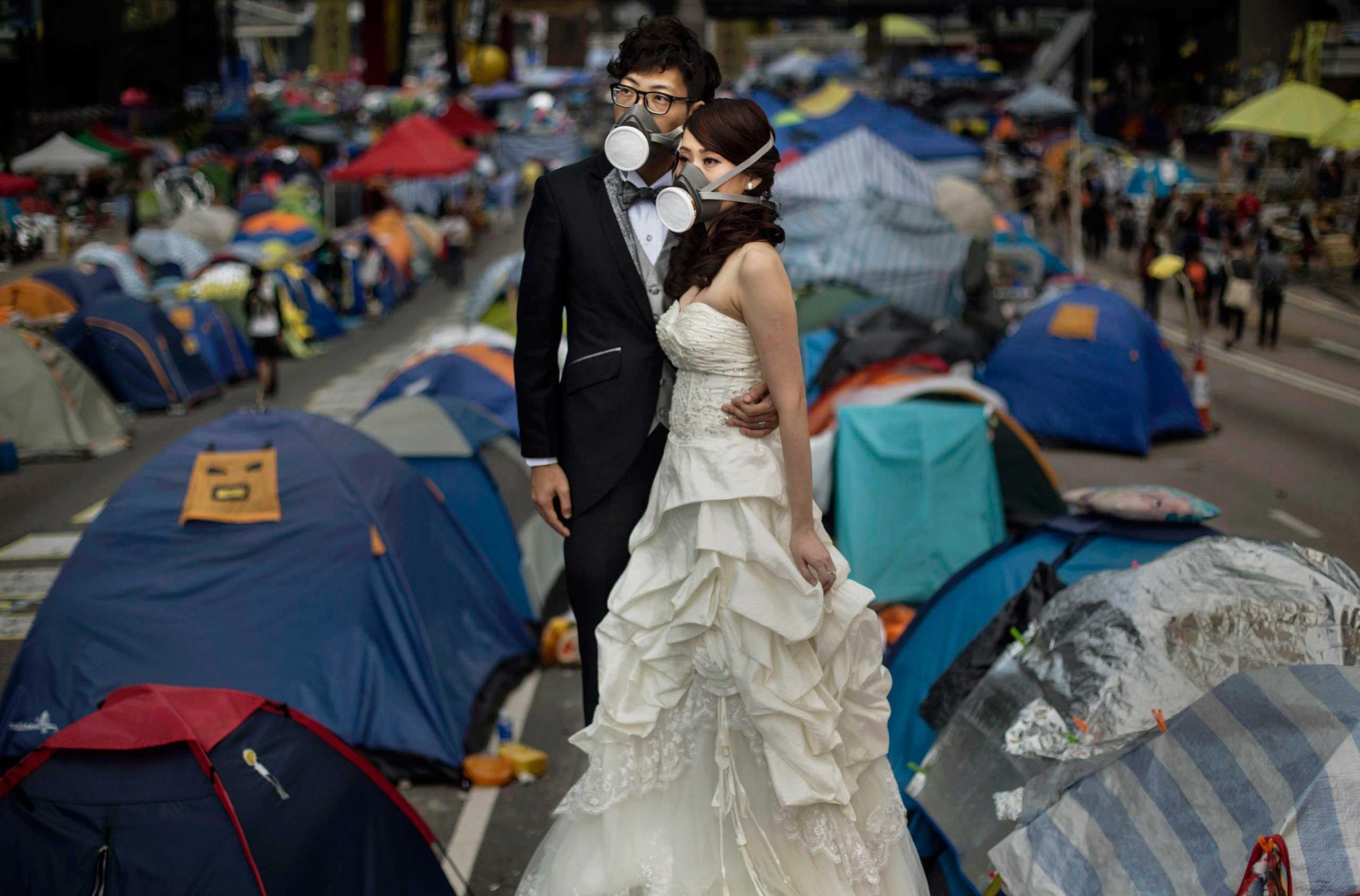
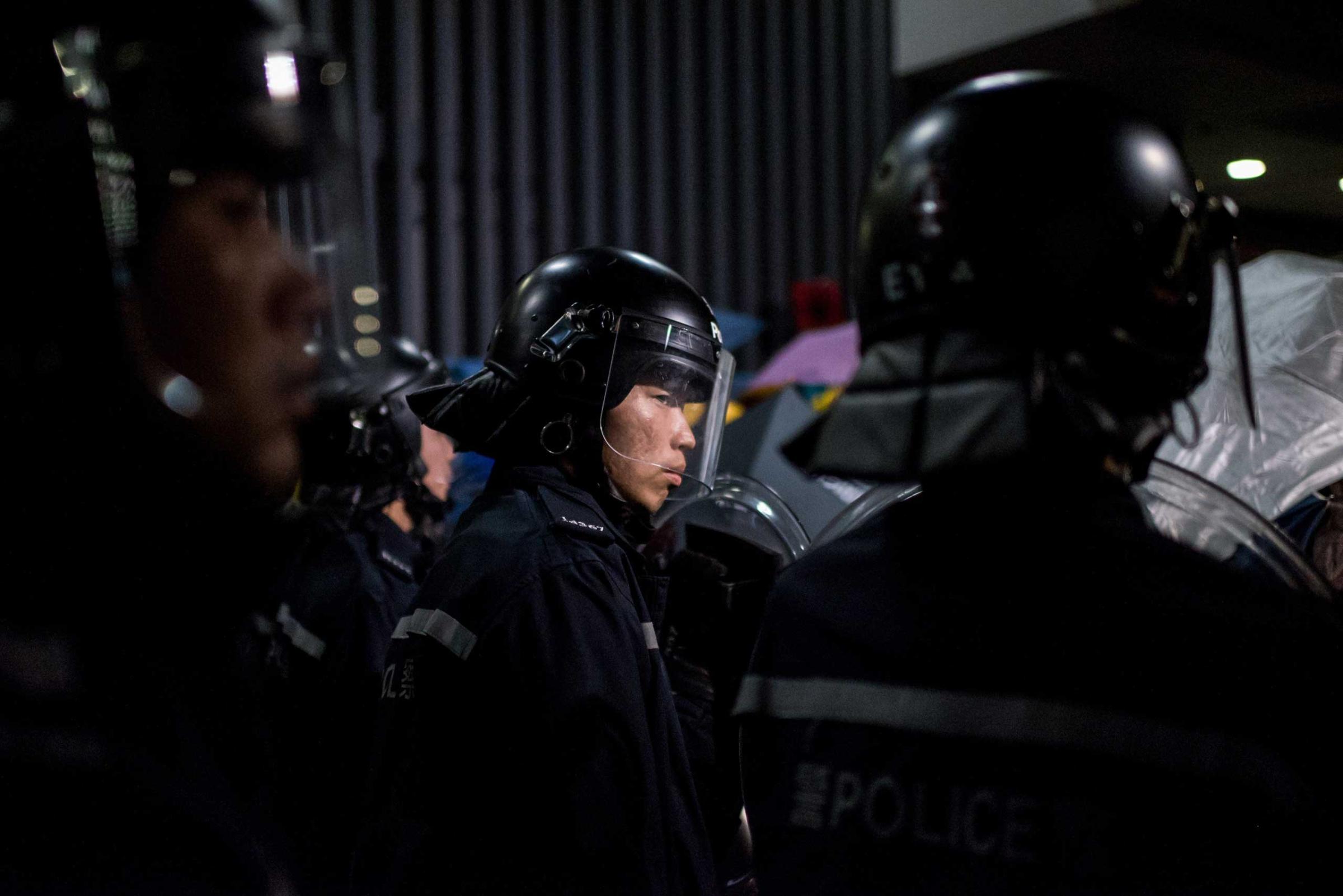
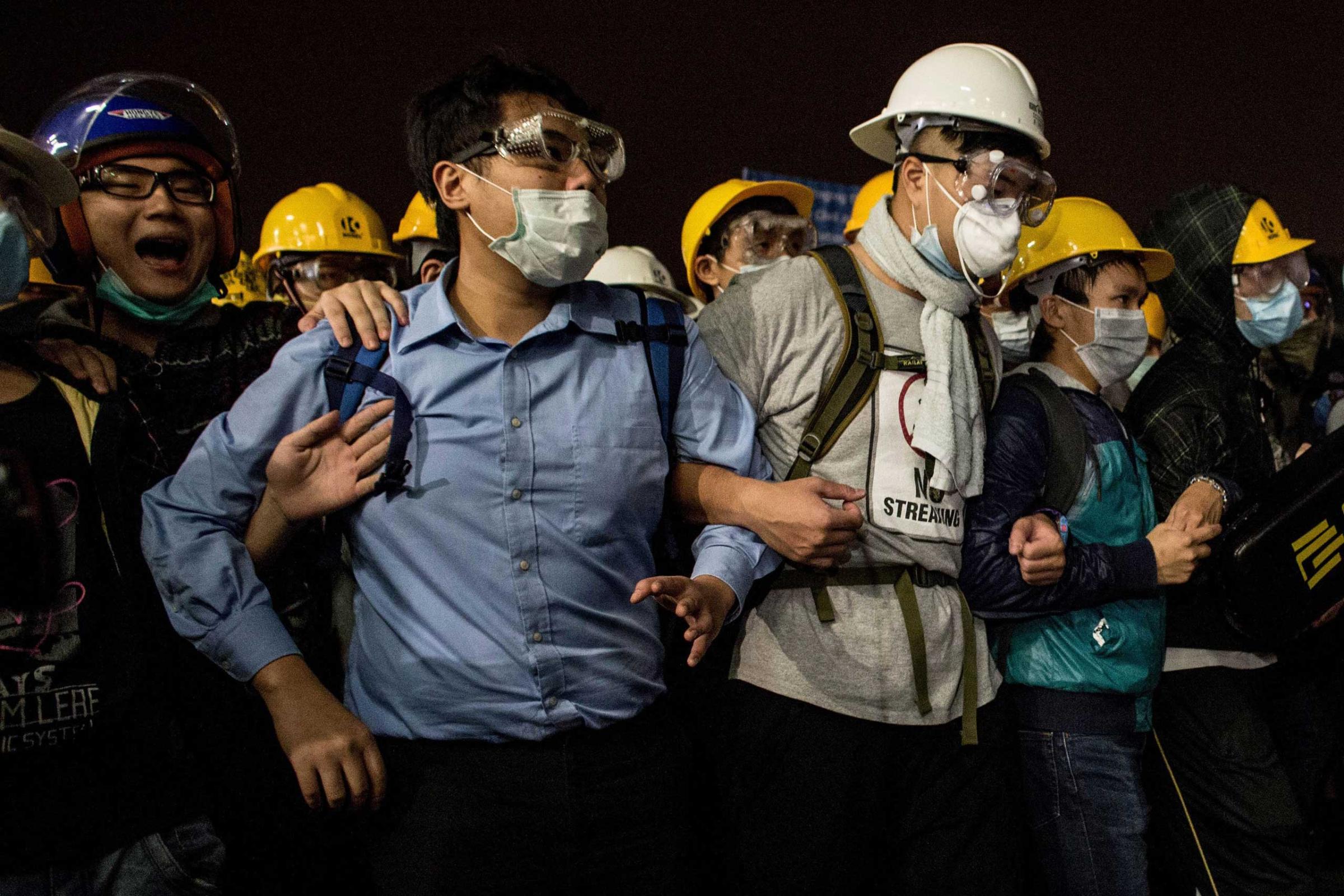
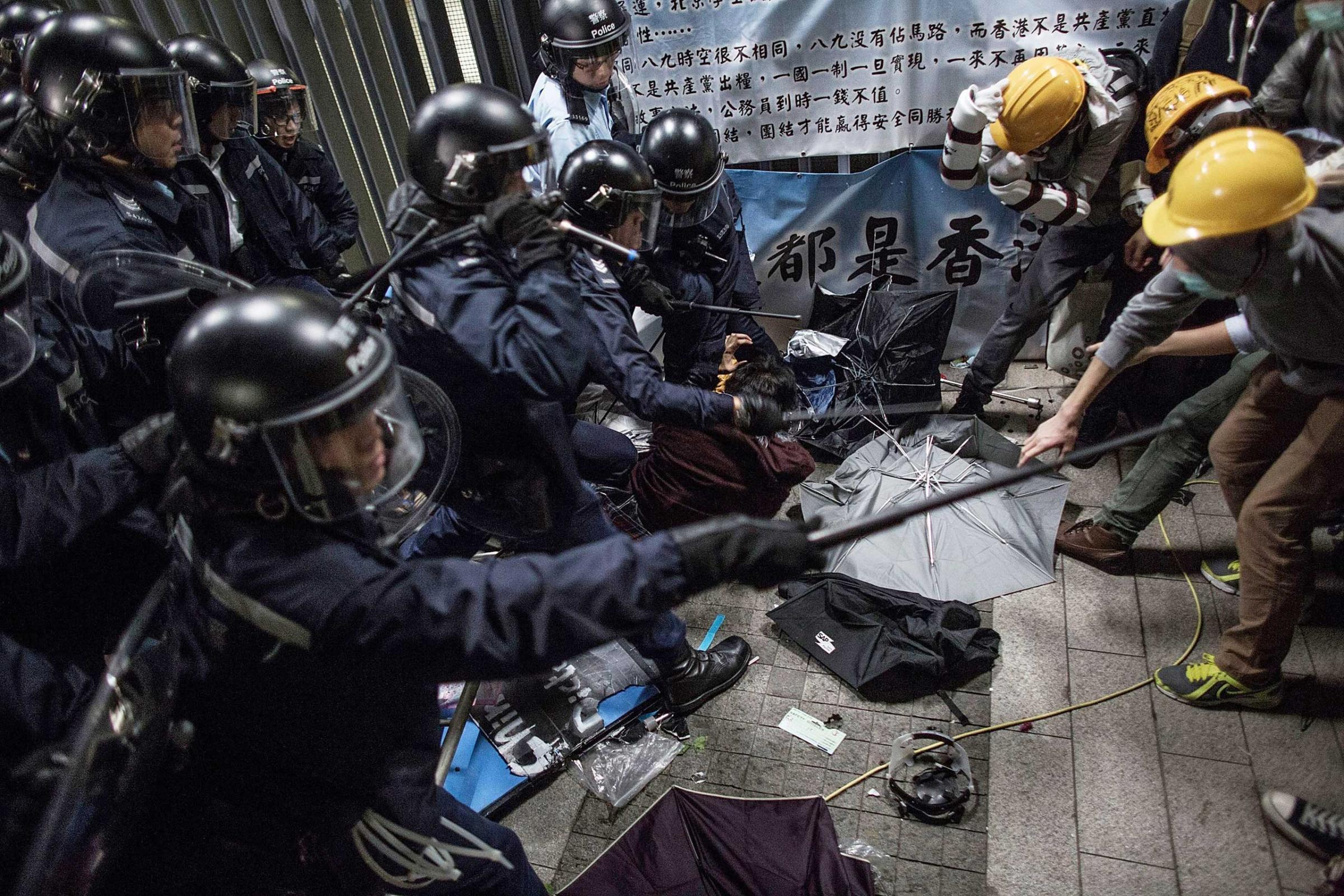
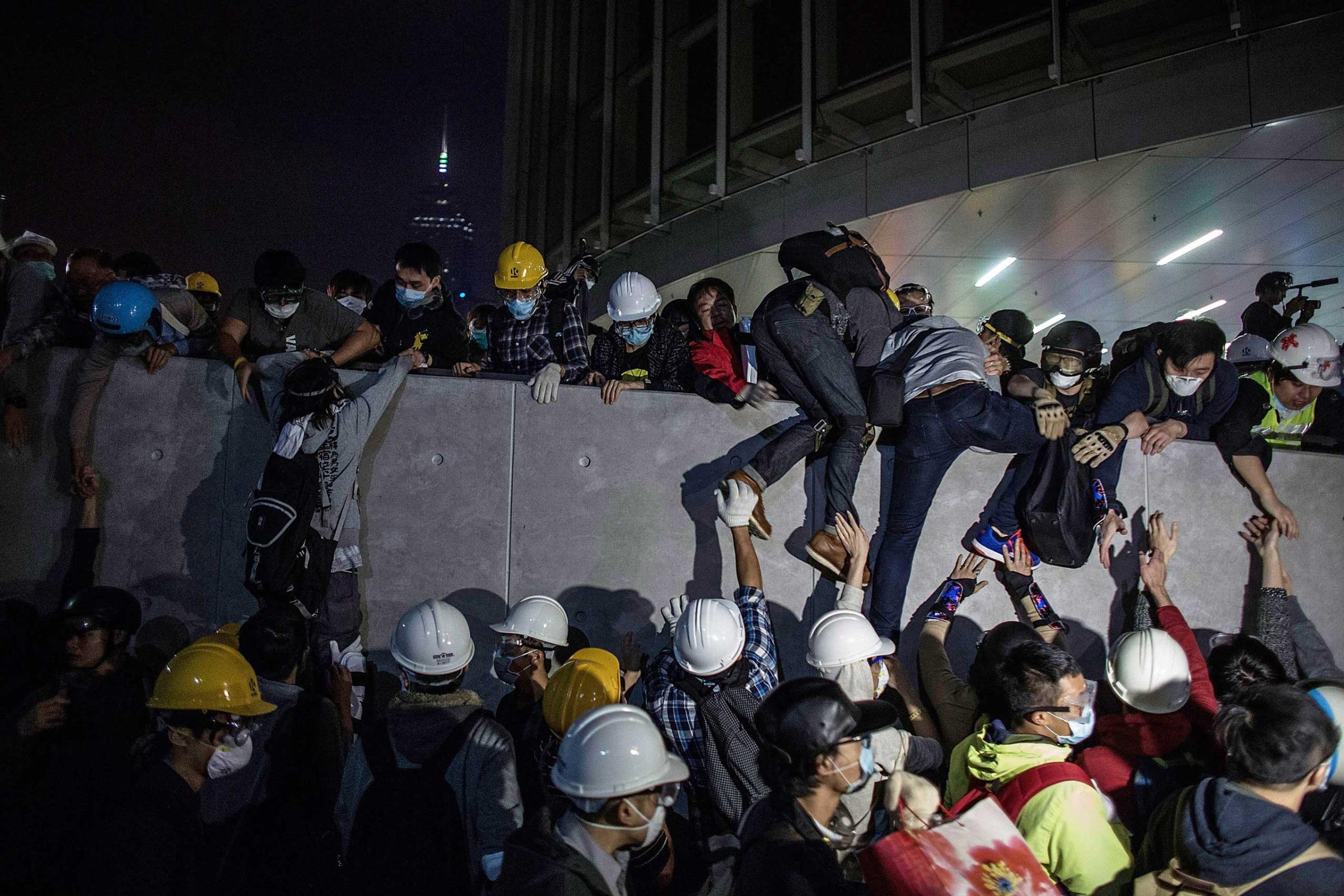
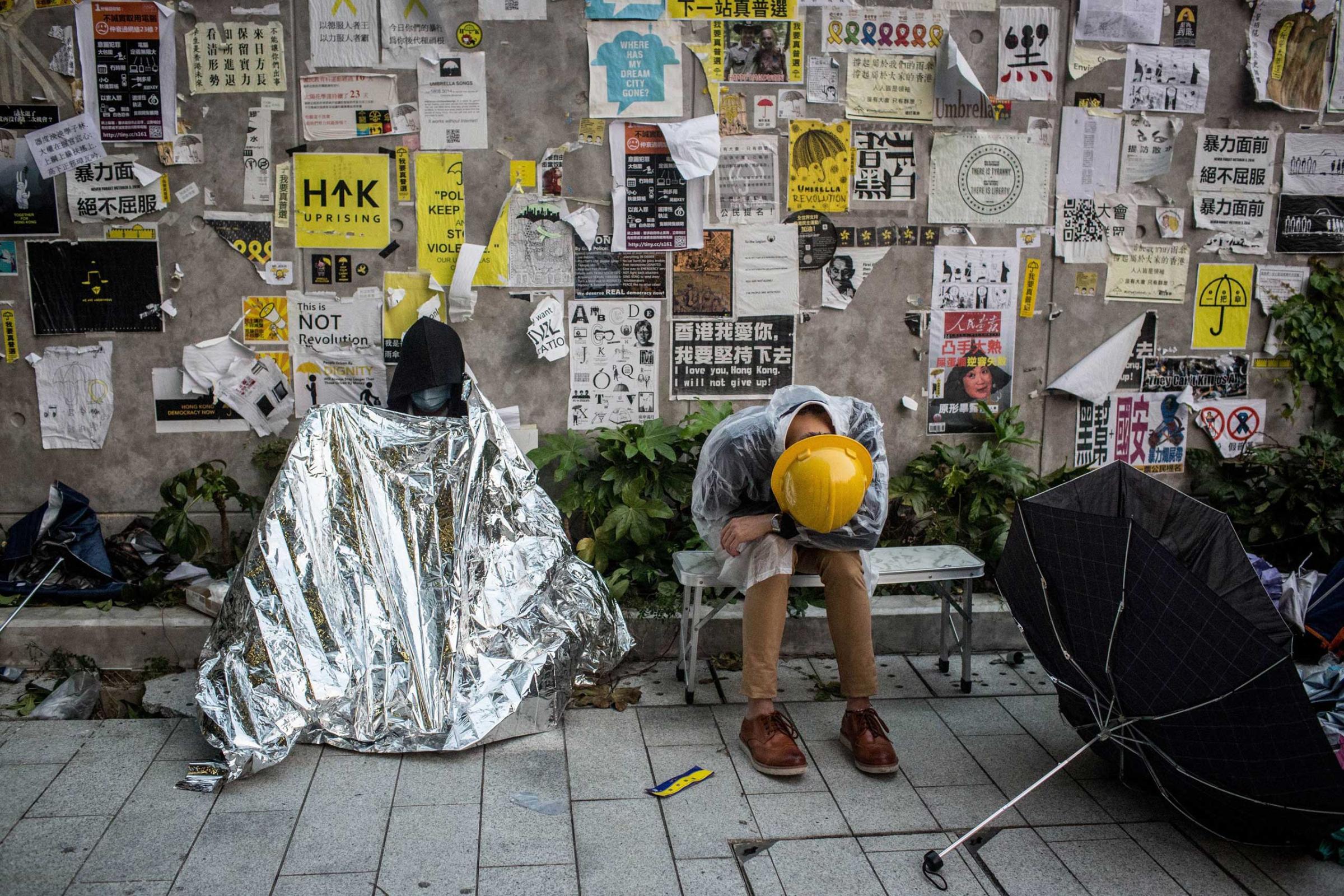
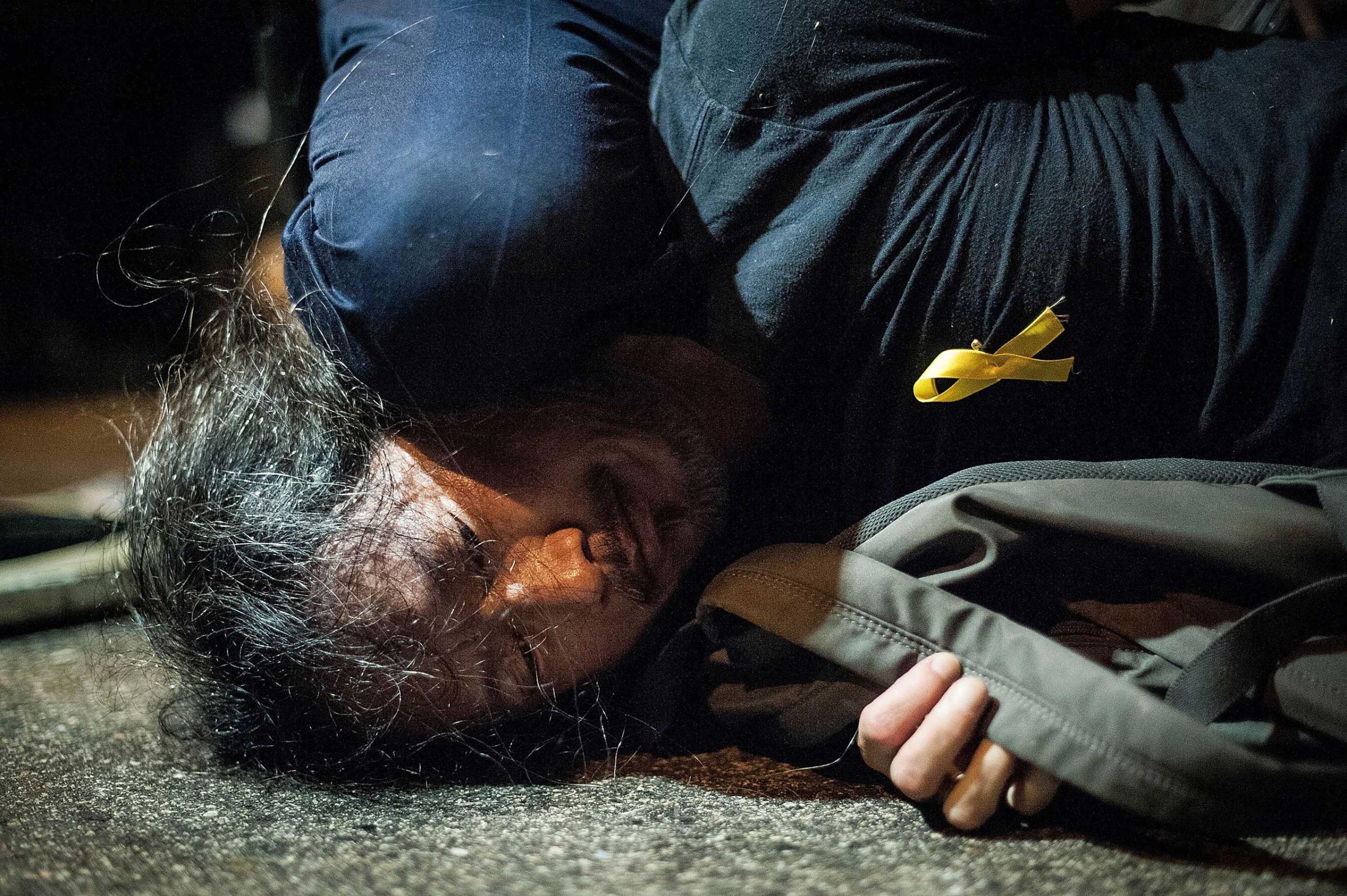
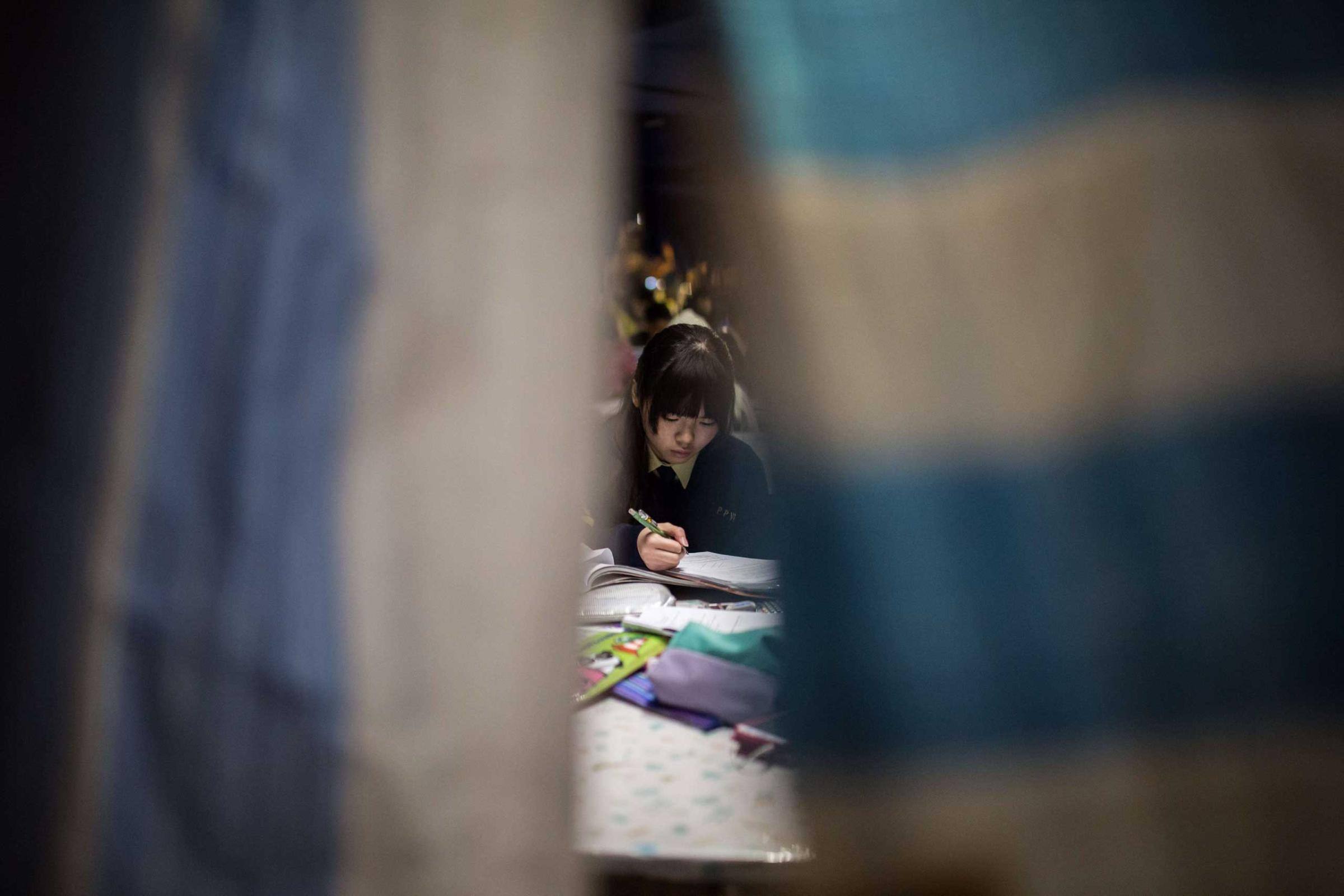
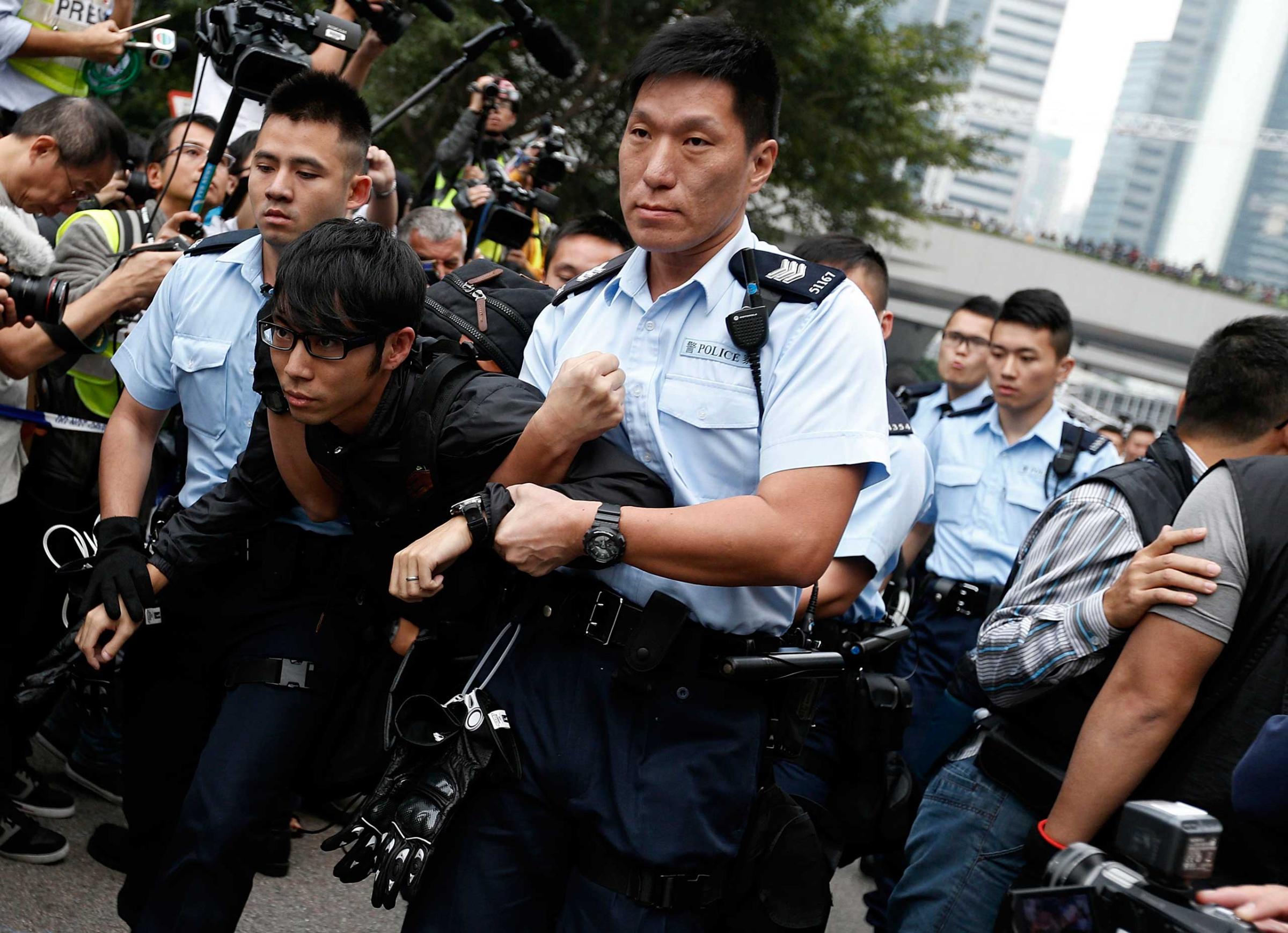
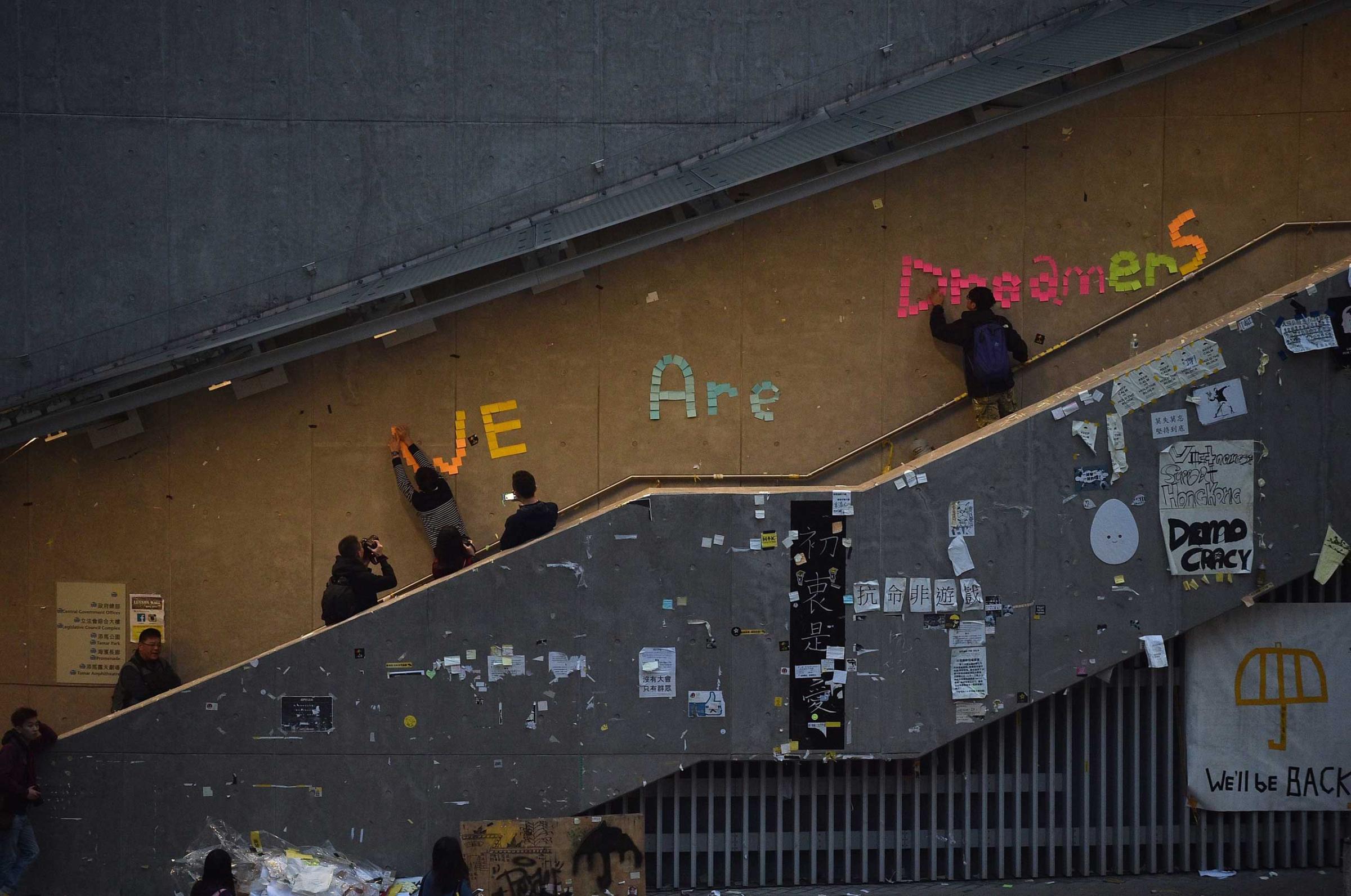
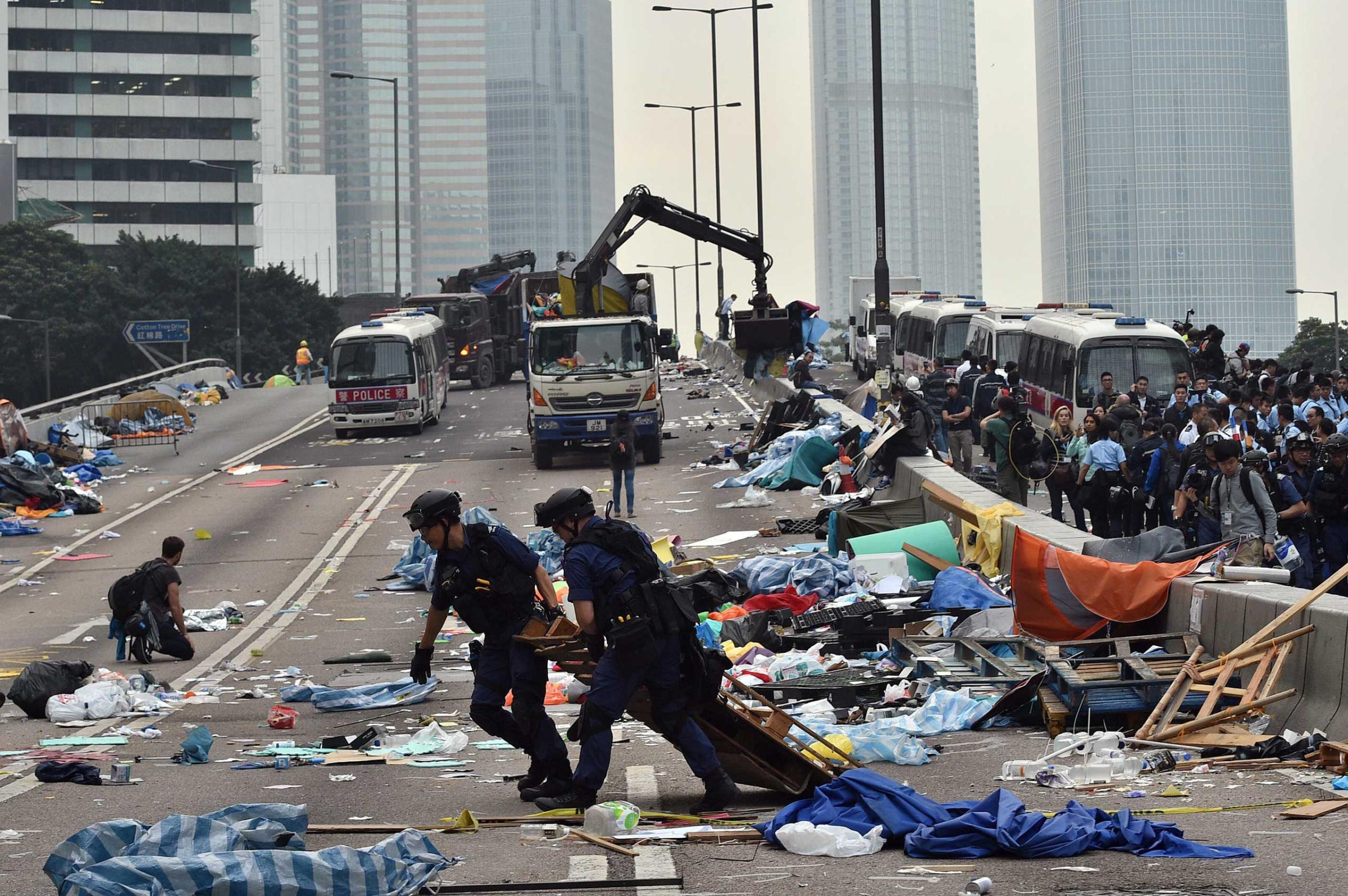
While it’s too early for China’s leaders to telegraph their preference, the conventional wisdom is that Leung, Tsang as well as the unrelated Financial Secretary John Tsang, a career civil servant, would all be acceptable to Beijing. Tsang Yok-sing’s biggest advantage is his common touch, which can also help China improve its image in Hong Kong. “[Leung] simply does not give two hoots about what the public thinks,” says Anson Chan.
Earlier this year, Hong Kong was seized by the news that five booksellers who trafficked in tabloid tomes critical of Beijing’s political elite had disappeared and resurfaced under mainland detention. One of them was almost certainly snatched from Hong Kong. This was, critics said, proof that “one country, two systems” had failed, and, far-fetched though it may sound, many Hong Kongers started fearing a midnight knock on the door. Leung stayed mum on the matter for months. Tsang, however, swiftly went public to demand that Beijing clarify the situation and prove Hong Kong’s constitutional autonomy had not been breached. “[Tsang] has tried to make Beijing understand that the Hong Kong people want to speak,” says Leung Kwok-hung, an activist-lawmaker (unrelated to C.Y. Leung) who goes by the accurate moniker Long Hair. “Deep in his mind he’s longing for a fundamental change in China—for a more civilized, democratic place.”
The relationship between Long Hair, a legislative disruptor who wears collarless T-shirts and a Che Guevara wristwatch, and Tsang, usually buttoned-down in Mandarin jackets, spotlights the former speaker’s ability to reach across the aisle. Though Long Hair is routinely vilified by Beijing, and though the pair often clashed in the legislature, they are friends. They flew together recently to Poland for a local celebrity TV travel feature, and they have a two-man book club: when Tsang remarried in 2009 after a divorce, Long Hair gave him a copy of Erich Fromm’s The Art of Loving.
“The chief executive shall be a person who loves the country and loves Hong Kong.” So the Standing Committee of China’s National People’s Congress decreed on Aug. 31, 2014. It’s to help ensure that someone like Long Hair, or, worse for Beijing, an independence advocate, does not become CE. As it is, the nominations and election are rigged anyway to block anyone critical of the CCP and its leaders. “I accept that China is my country,” says Raymond Chan, 61, who manages a cell-phone-repair shop. “But Hong Kong is still Hong Kong. I wish China did not pick our chief executive, because they pick the same sorts of people. But Tsang—he’s fair.”
Could he make a difference if he took Hong Kong’s top job? The task is a nearly impossible one: pleasing Beijing while simultaneously satisfying the conflicting demands of myriad local constituencies. “It’s the duty of the chief executive to tell Beijing how things are in Hong Kong, even if the emperor might kill the messenger,” says Lau, the democratic lawmaker. Tycoon-politician Tien is blunter: “The next chief executive needs to convince Beijing not to take a hard-line approach to Hong Kong.”
China’s growing footprint in the city seems to signal that the CE is only a dutiful administrator, not an agent of change. “No matter who becomes chief executive, he or she will be totally controlled by the CCP,” says Joshua Wong, the student activist who was in the vanguard of the Occupy movement. But even just a shift of tone could at least lower the temperature. “We should all change our mind-sets,” says Tsang. “We must stop regarding one another as enemies.”
Tsang is no longer the wide-eyed 20-year-old who sat up late into the night reading political philosophy and imagining how to better the world. But he remains an optimist. “I believe the central government and most Hong Kong people still want to make ‘one country, two systems’ successful,” says Tsang. “Otherwise, Hong Kong will simply become another Chinese city.” That would be a loss to Hong Kong, China and the world.
—With reporting by Zoher Abdoolcarim and Aidyn Fitzpatrick/Hong Kong
More Must-Reads from TIME
- Cybersecurity Experts Are Sounding the Alarm on DOGE
- Meet the 2025 Women of the Year
- The Harsh Truth About Disability Inclusion
- Why Do More Young Adults Have Cancer?
- Colman Domingo Leads With Radical Love
- How to Get Better at Doing Things Alone
- Michelle Zauner Stares Down the Darkness
Contact us at letters@time.com